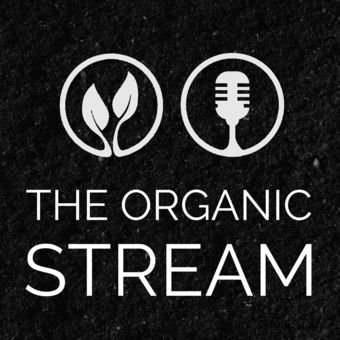
The Organic Stream
The Organic Stream
The Organic Stream Podcast is a talk show about organics recycling and soil management featuring experts and key figures in the environmental sphere. We focus on sharing their insights, experiences and best practices in collecting, composting and bio-digesting organic material. Subscribe today to stay up to date with the latest stories from the field.
- 31 minutes 35 secondsSoils, Compost and Climate Change #2: From COP21 To Now
EPISODE SUMMARY
In part two of our climate talks episode, we’re delving deeper into the main discussion points, the challenges, and the dangers we’re facing right now in making agriculture and soil a key player in climate change strategies. By the end, we should have a decent overview of the situation and will be all set for COP22. We’ll also be sharing insights from the International Compost Roundtable – a side event that took place during COP21, with speakers Enzo Favoino of Zero Waste Europe, climate change advisor Calla Rose Ostrander, and Teresa Anderson of Action Aid.
We discuss: the latest developments from the SBSTA, the issues with linking soil carbon sequestration with cutting emissions, the dangers of greenwashing, and how to support compost markets in a fair, sustainable way.
MADE POSSIBLE BY BIOBIN®
BiobiN® is a mobile, on-site organic/wet material management solution that starts the composting process and effectively manages odour from putrescible waste. BiobiN® can be used in a variety of outlets, including food manufacturing, restaurants, shopping centres, supermarkets…it’s endless. Wherever organic or wet materials are generated, BiobiN® is THE solution. For more, visit their website.
RESOURCES:
An analysis of submissions to SBSTA 44 on agriculture and adaptation. CIFOR May 2016.
Lima Paris Action Agenda Official Website.
10 options for agriculture at Marrakech climate talks. CCAFS September 2016.
Soil Carbon Can’t Fix Climate Change By Itself—But It Needs to Be Part of the Solution. Article. Union of Concerned Scientists USA. 2016.
EPISODE SLIDESHOW
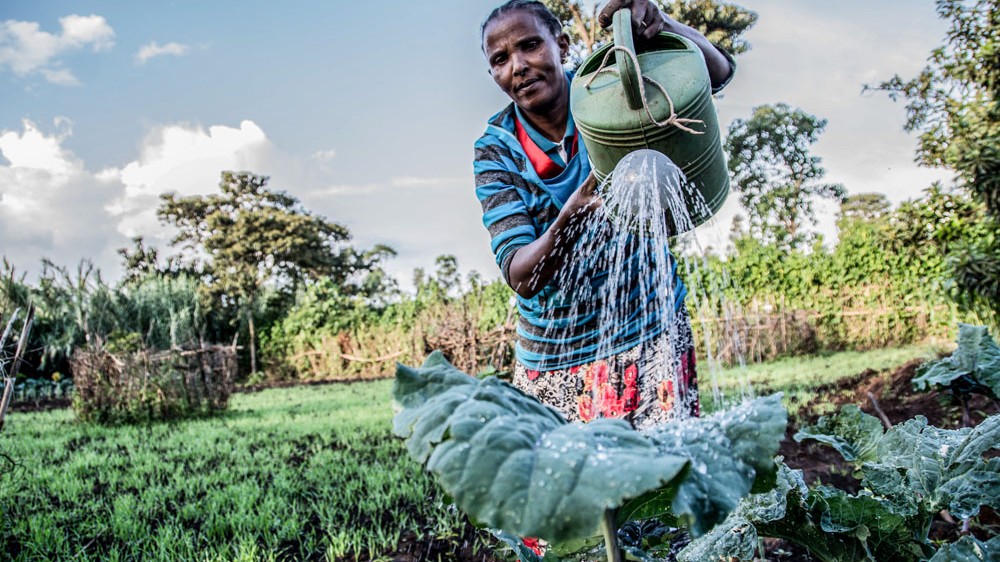
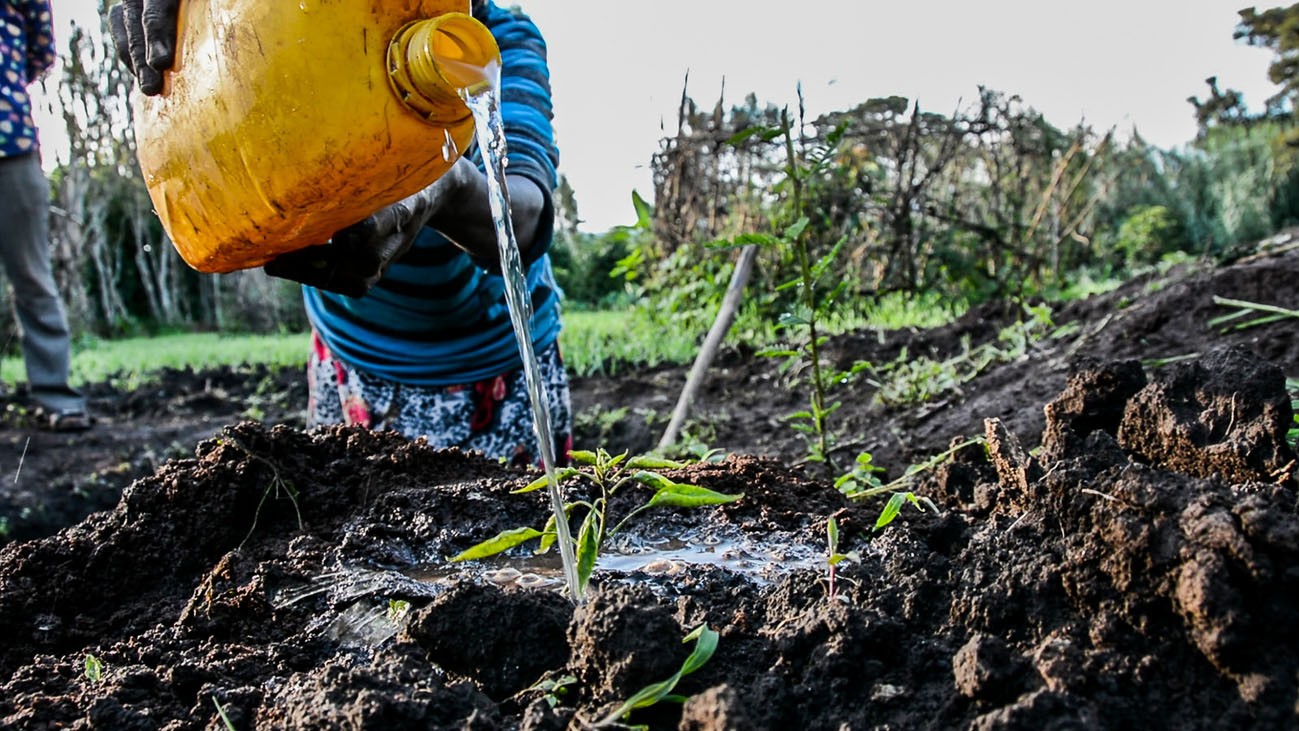
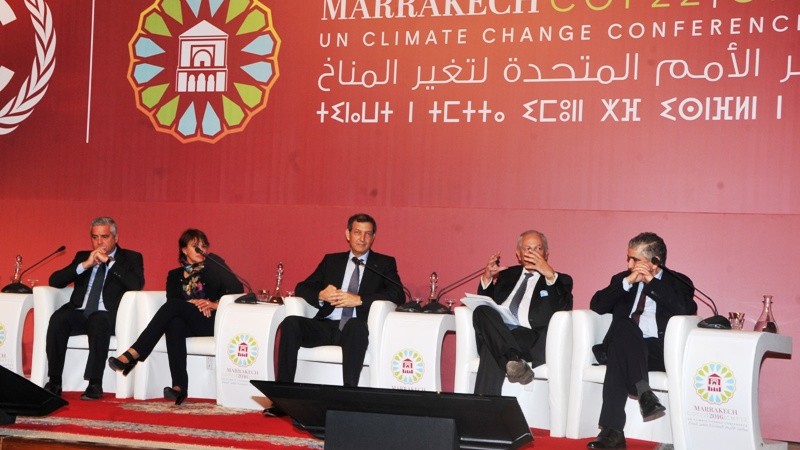
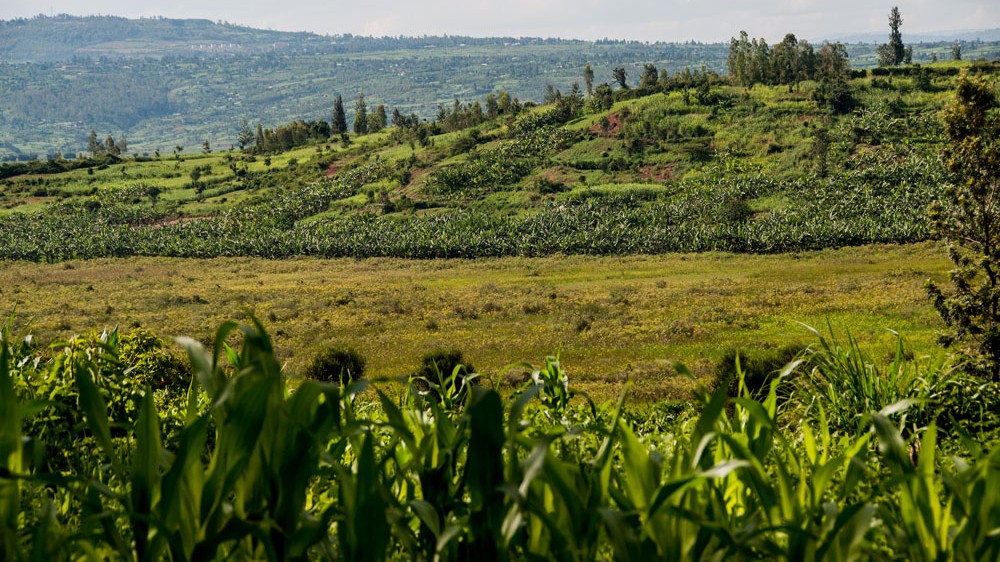

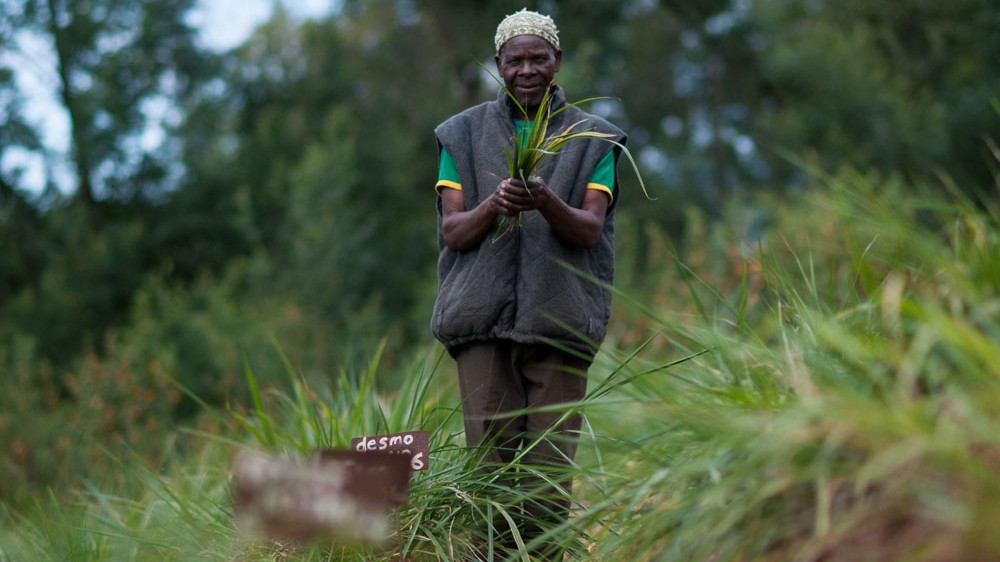
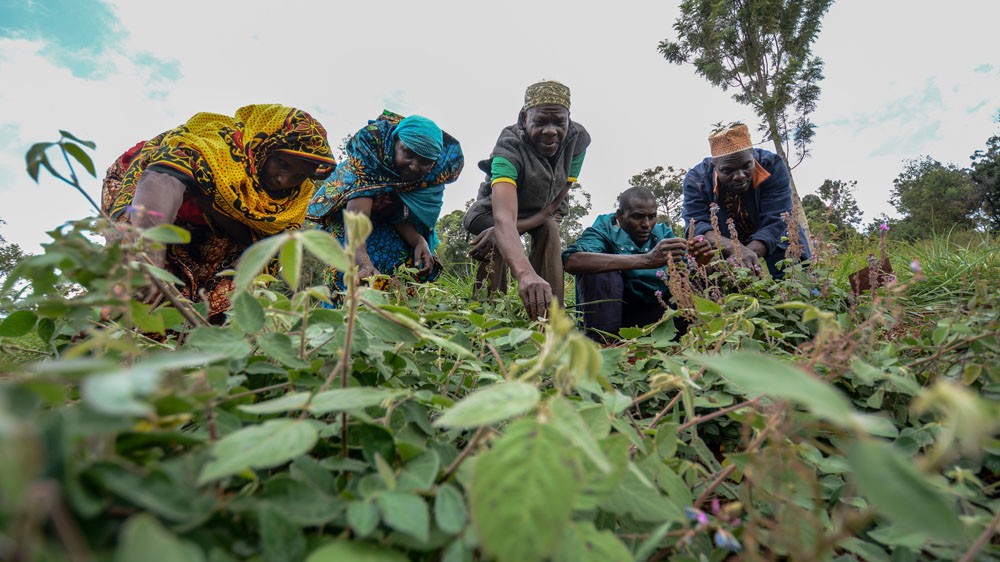
Picture Attribution:
Forages in Tanzania: making trade-offs. By CIAT. Some Rights Reserved.
Forages in Tanzania: making trade-offs. By CIAT. Some Rights Reserved.
Forages in Rwanda. By CIAT. Some Rights Reserved.
Forages in Rwanda. By CIAT. Some Rights Reserved.
Debre Berhan, central Ethiopia. By CIAT. Some Rights Reserved.
Hosana, Ethiopia. By CIAT. Some Rights Reserved.
Réunion inter-ministérielle COP22. By Ministère des Affaires Etrangères et de la Coopération. Some Rights Reserved.
Présentation de la feuille de route du Maroc pour la COP22. By Ministère des Affaires Etrangères et de la Coopération. Some Rights Reserved.
7 November 2016, 9:27 am - 24 minutes 47 secondsSoils, Compost and Climate Change #1: From COP21 To Now
EPISODE SUMMARY
In this two-part episode we discuss what role compost, soil, and agriculture played during the COP21 climate talks last year, and review what has been happening since, with COP22 just around the corner. We’ll also be sharing insights from the International Compost Roundtable – a side event that took place during COP21, with speakers Enzo Favoino of Zero Waste Europe, climate change advisor Calla Rose Ostrander, and Teresa Anderson of Action Aid.
We cover the dangers of language and how it can lead to greenwashing and bad policy, challenges in measuring results with soil carbon sequestration, how the attention on soil & agriculture translated into action, how our policy frameworks need to change, and much more.
MADE POSSIBLE BY BIOBIN®
BiobiN® is a mobile, on-site organic/wet material management solution that starts the composting process and effectively manages odour from putrescible waste. BiobiN® can be used in a variety of outlets, including food manufacturing, restaurants, shopping centres, supermarkets…it’s endless. Wherever organic or wet materials are generated, BiobiN® is THE solution. For more, visit their website.
FEATURED EVENT
Ecomondo 2015, November 8th to 11th. Rimini Italy.
The largest technology platform for the Green and Circular Economy in the Euro-Mediterranean area – and for advanced and sustainable technology for processing and recycling all kinds of waste; treating and reclaiming water, waste water and polluted marine sites; efficient use and transformation of raw and processed materials and the promotion of renewable raw materials.
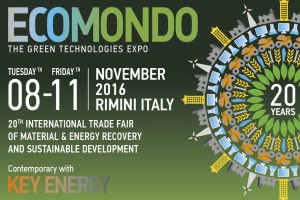
Disruptive Innovation Festival (DIF) 2016. November 7th to 25th. Online.
An online, open access event that invites thought-leaders, entrepreneurs, innovators, businesses, makers and learners to explore the question “The economy is changing – what do I need to know, experience and do?”. Using a mix of online and face to face events, participants have the opportunity to explore the economy through a different lens. Sessions demonstrate how people worldwide are challenging the current ‘take, make and dispose’ economic model.
EPISODE SLIDESHOW
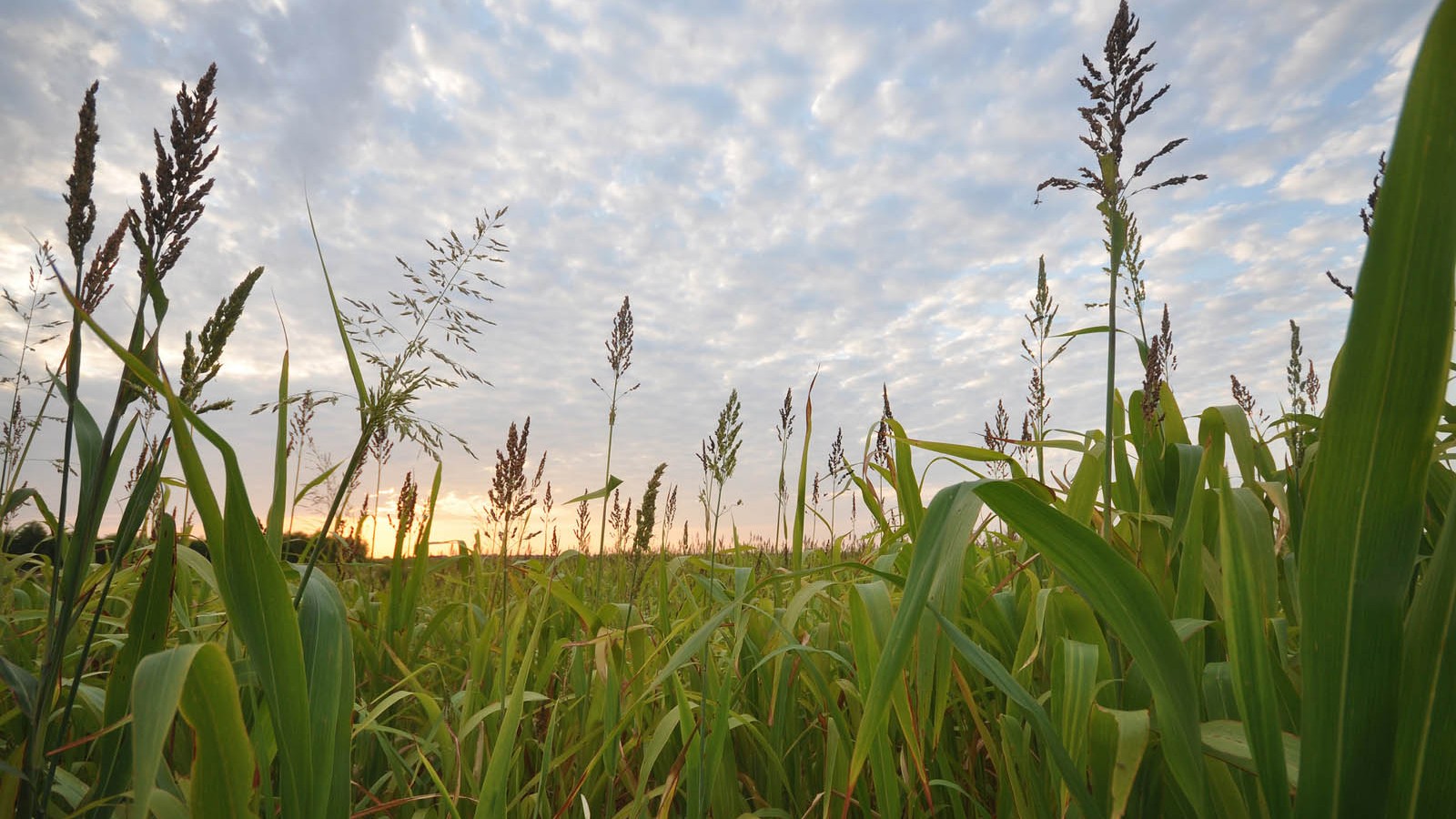
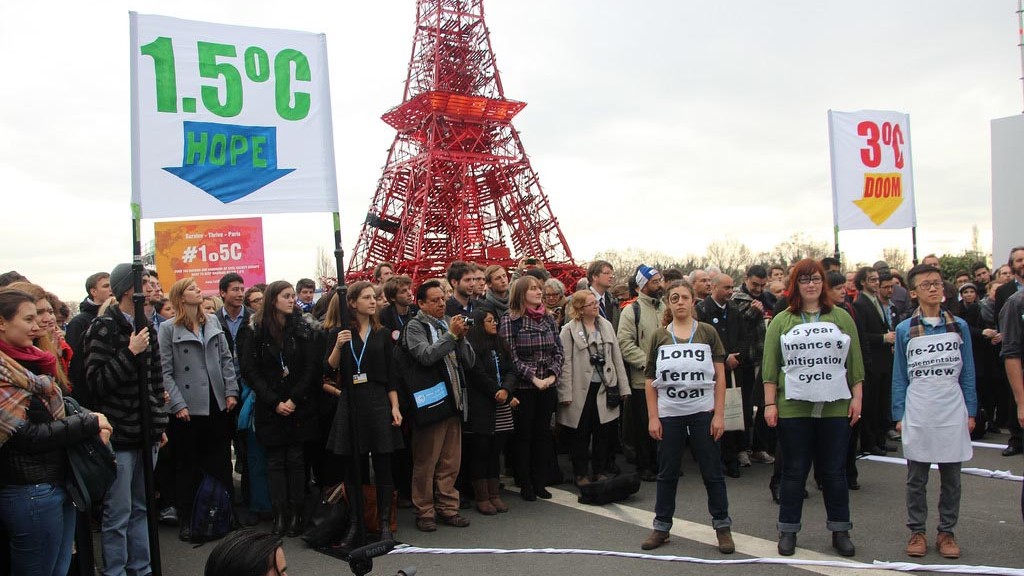
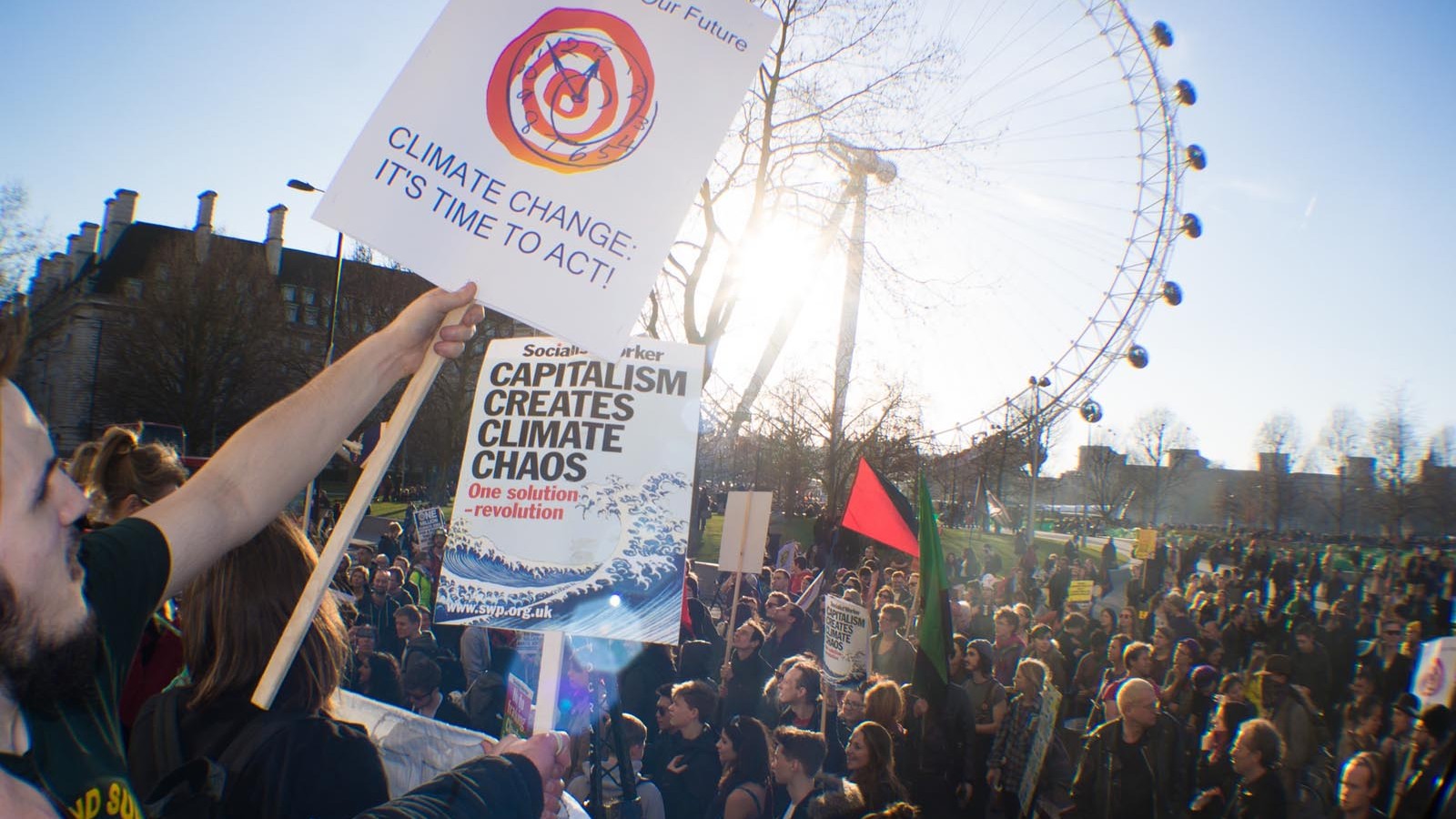
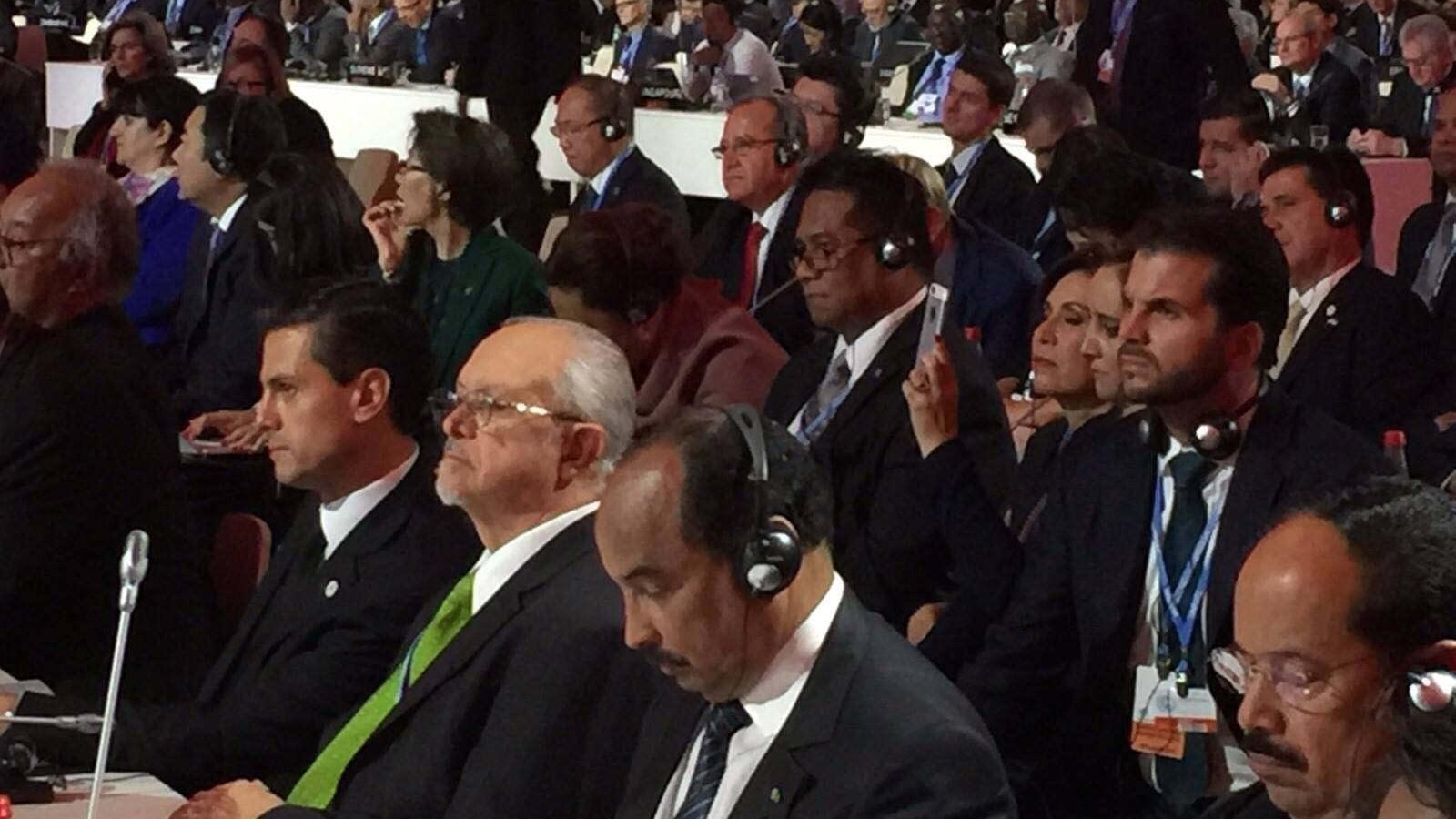
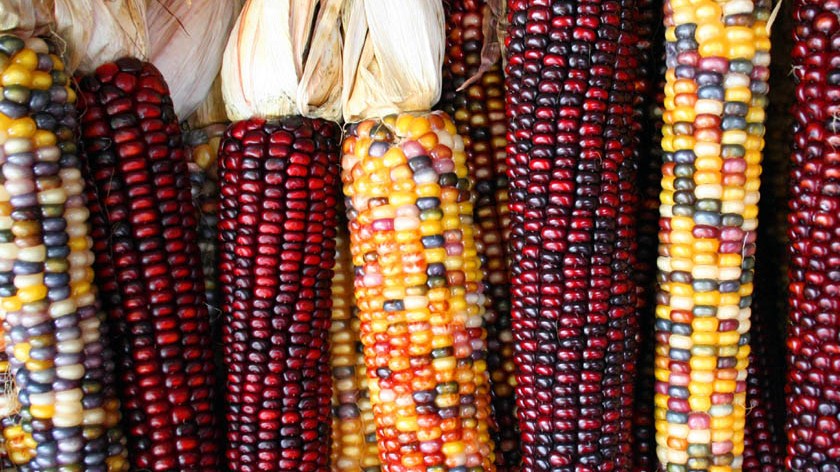
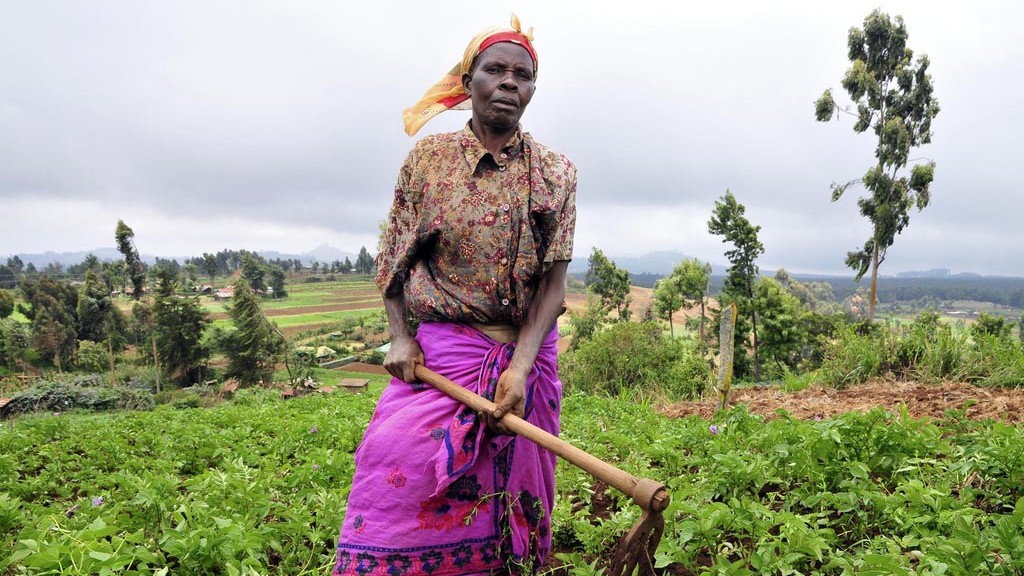
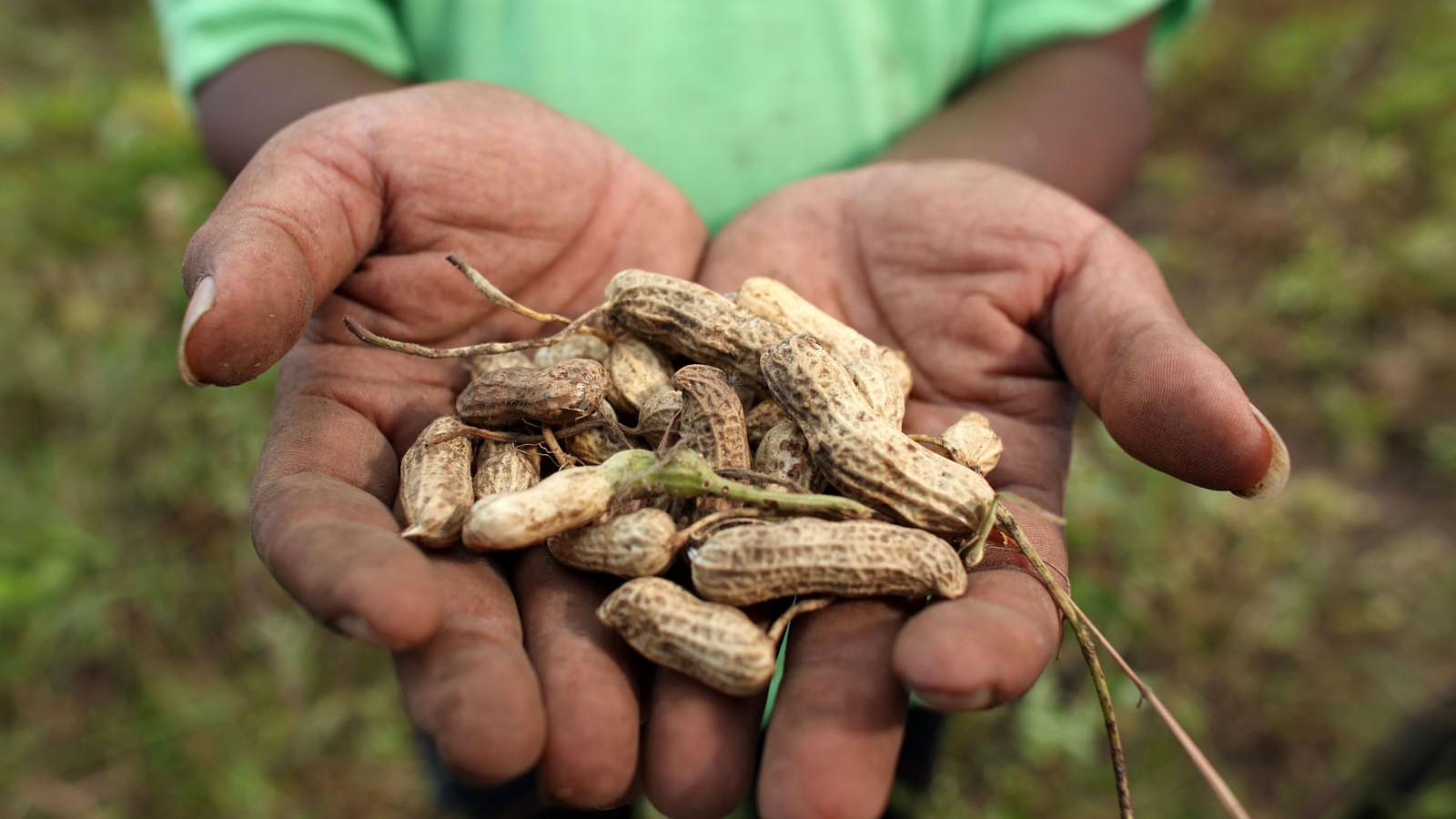
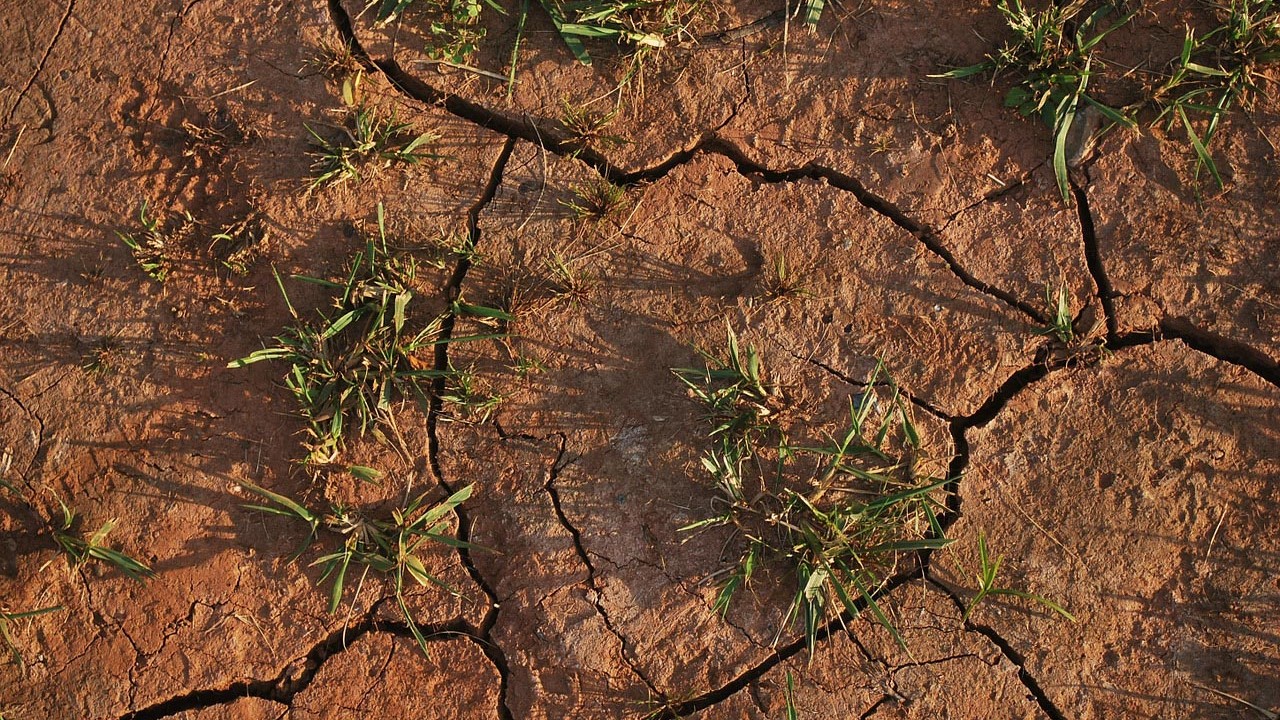
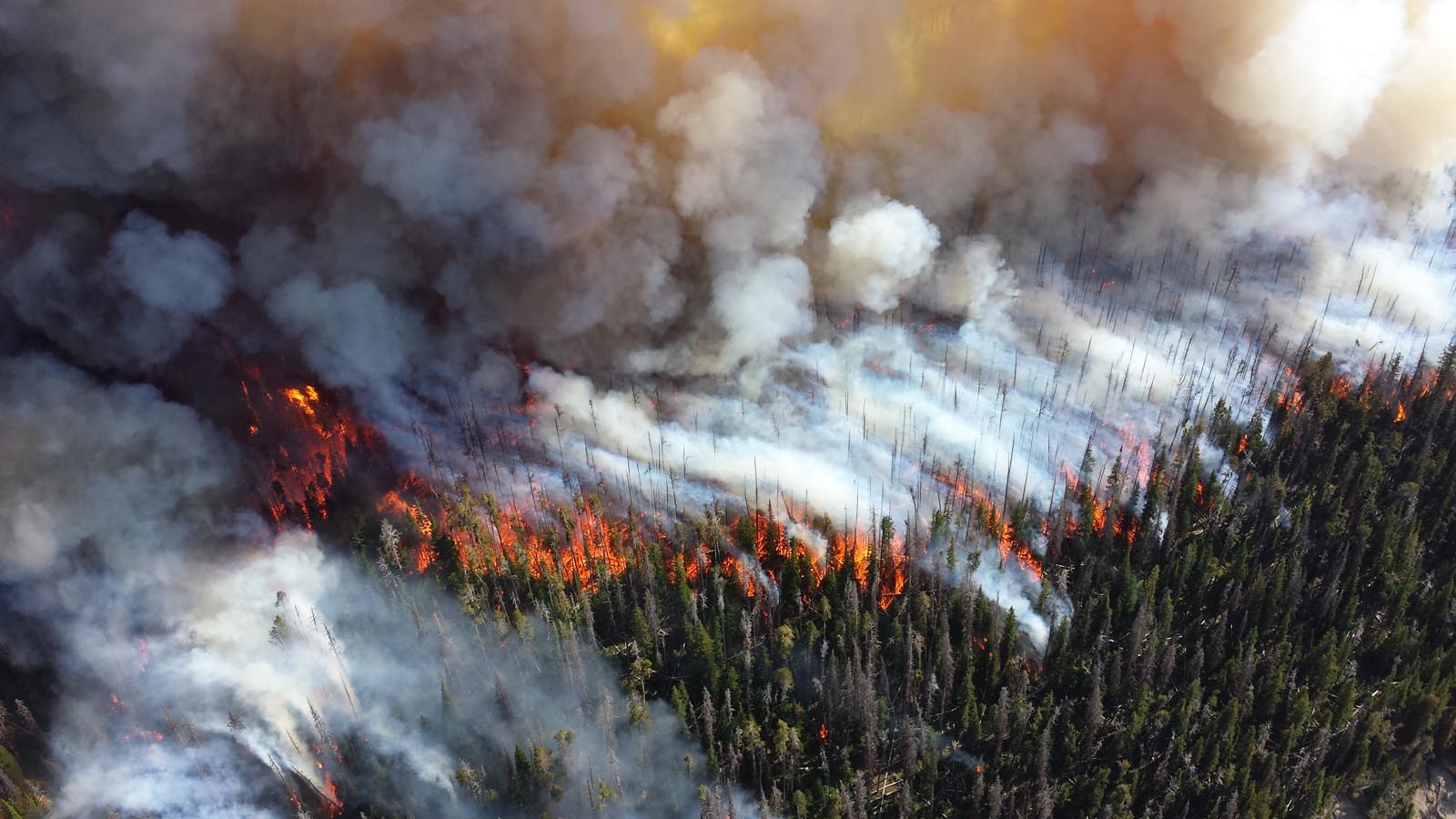
RESOURCES:
INDC Assessment: The Land Sector and Country Commitments to Global Climate Action. Rainforest Alliance. 2015.
How countries plan to address agricultural adaptation and mitigation. CCAFS, CGIAR, 2015.
Picture Attribution:
Forages in Tanzania: making trade-offs. By CIAT. Some Rights Reserved.
Conferencia de la ONU sobre Cambio Climático COP21. Some Rights Reserved.
Conferencia de la ONU sobre Cambio Climático COP21. Some Rights Reserved.
COP21 Protests-1420337 by Mark Dixon. Some Rights Reserved.
Civil Society helps COP21 Choose the right road to 1.5C degrees by Takver. Some Rights Reserved.
2DU Kenya 87. By CIAT. Some Rights Reserved.
Food security, Indonesia (10695853234).jpg. Josh Estey/AusAID. Some Rights Reserved.
Jonathan Cobb’s farm with cover crops. By U.S. Department of Agriculture. Some Rights Reserved.
Time To Act Climate Change London Protesters Creative Commons. By David B Young. Some Rights Reserved.
Cobs of corn. By Asbestos.
13 October 2016, 12:54 pm - 25 minutes 21 seconds[Retrospective] Vineyards Special #1: The Wonders of Cover Crops
EPISODE SUMMARY
While we will continue to make new episodes, there are times when we feel the urge to highlight a past episode – because the topic it covers becomes news and the show shares some great insights, or because it is content that our newer listeners might have missed out on. Since last year was the International Year of Soils, we will be republishing a few of our best episodes about soil and soil health to get a fresh perspective in light of all the progress that has been made on the issue.
To round-off the series, we’re ending with a in-depth look at a popular and very effective sustainable agricultural technique: cover cropping. In episode 16 of our show, we had with us Bob Cannard and Bob Shaffer – both experienced sustainable farmers and horticulturalists. They shared their techniques with us, explained just how cover cropping works and how beneficial it can be, and gave us their expert advice. We learned a lot about cover crops in making this episode, and if you’re wondering after the last two episodes, just what exactly the sustainable agricultural techniques might look like that we need to start pushing for – this is the episode for you.
Links to other episodes in the Series:
Episode 3
–
–
Photo by Robert Reed, courtesy of Recology.
18 July 2016, 6:48 am - 34 minutes 22 seconds[Retrospective] Drought Special #3: Fighting A Drought: Levers for the Public Sector
EPISODE SUMMARY
While we will continue to make new episodes, there are times when we feel the urge to highlight a past episode – because the topic it covers becomes news and the show shares some great insights, or because it is content that our newer listeners might have missed out on. Since last year was the International Year of Soils, we will be republishing a few of our best episodes about soil and soil health to get a fresh perspective in light of all the progress that has been made on the issue.
Today’s retro episode is all about policy, and the Australian experience.
Our guests are former Governor General of Australia and Advocate for Soil Health, Major General Michael Jeffery, and co-founder of Ylad Living Soils Rhonda Daly. In this episode we discover the crucial elements needed to build a comprehensive policy framework that will protect not only our soils but our landscapes. We look at the current Australian system, soil health, incentives for compost production, farm management practices, and the need to change our systems in order to better reward and support our land managers – the stewards of the earth. We then link this back to the current recommendations made in the FAO’s report Status of the World’s Soil Resources.
Links to other episodes in the Series:
Episode 2
–
LINKS:
Episode 2: Drought Special #3: Fighting A Drought: Levers for the Public Sector.
Status of the World’s Soil Resources 2015, Technical Summary. FAO Report.
–
FEATURED EVENT
International Composting Awareness Week Australia (ICAW), is a week of activities, events and publicity to improve awareness of the importance of compost, a valuable organic resource and to promote compost use, knowledge and products. We can compost to help scrap carbon pollution by avoiding landfilling organic materials and helping to build healthier soils.
–
–
28 April 2016, 12:46 pm - 25 minutes 20 seconds[Retrospective] Soil Crisis #2: Soil & The Circular Economy: Building A Movement
EPISODE SUMMARY
While we will continue to make new episodes, there are times when we feel the urge to highlight a past episode – because the topic it covers becomes news and the show shares some great insights, or because it is content that our newer listeners might have missed out on. Since last year was the International Year of Soils, we will be republishing a few of our best episodes about soil and soil health to get a fresh perspective in light of all the progress that has been made on the issue.
Today’s retro episode is about the circular economy, and how it can benefit our soils. Our guest is industrial and environmental economist Robin Murray. As a zero waste pioneer and a leader in the fair trade and environmental movements for many years, Robin Murray had an excellent perspective to give on our current efforts in making soil health a priority and the circular economy a reality. We discuss the opportunities we have for building a movement to change our current economic model to a more sustainable one, including existing models that we can learn from, the importance of education and centers of learning for the movement, and the roadblocks we might face along the way.
Links to other episodes in the Series:
Episode 1
–
LINKS:
Episode 1: Soil Crisis #1: A Need For Economic and Political Change.
Status of the World’s Soil Resources 2015, FAO Report
–
–
4 March 2016, 12:15 pm - 41 minutes 7 secondsThe Anaerobic Digestion Update: Using Operational Efficiency & Better Policy to Solve Current Challenges
EPISODE SUMMARY
In this episode, we bring you a detailed update on the current status and challenges facing the Anaerobic Digestion sector today. With industry experts Jing Liu and Mario Rosato, we discuss the need for a better understanding of the AD process to improve operational efficiency, policy changes that support renewable energy and environmental safety, and for closed-loop systems that favour local abundant feedstocks over the use of energy crops.
And in part two of our episode, we bring you a briefing from Ecomondo 2015, sharing insights from the key figures we spoke to at the event last month. You can find video briefings and material from this event on our Events Page.
MADE POSSIBLE BY LUND UNIVERSITY & THE DEPT. OF BIOTECHNOLOGY, LUND UNIVERSITYLund University is recognised globally as one of the top research-led comprehensive universities. The university and its Faculty of Engineering is consistently ranked as one of the top 100 universities in the world. Responsible for research and postgraduate education in different engineering subjects, architecture and industrial design, Lund University’s Faculty of Engineering is today world-leading in a number of fundamental and applied fields, such as nanotechnology, combustion physics, automation, chemical & environmental engineering and biotechnology. For more, the Lund University website, and the Department of Biotechnology page.
Bioprocess Control Sweden AB is a technology provider in the area of advanced instrumentation and control technologies for research and commercial applications in the biogas industry – exporting to more than 45 countries around the world. With a portfolio of smart instruments in the area of substrate analysis and process simulation, Bioprocess Control offers technology solutions that both stabilise and unleash the true potential of a biogas plant. For more, visit their website.
EPISODE SLIDESHOW
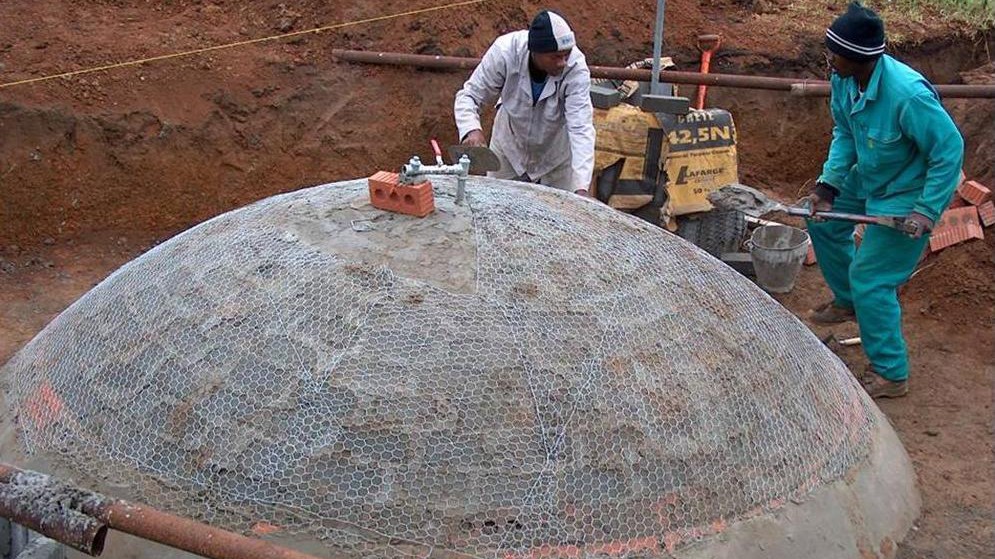
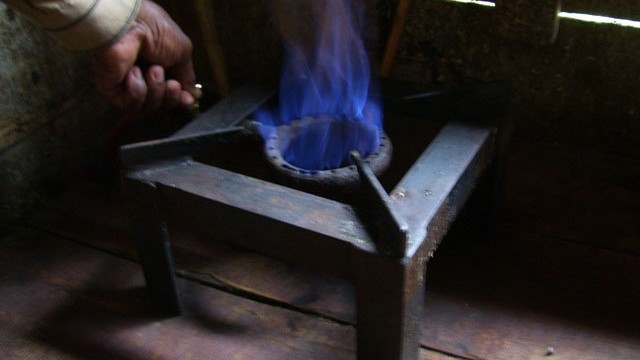
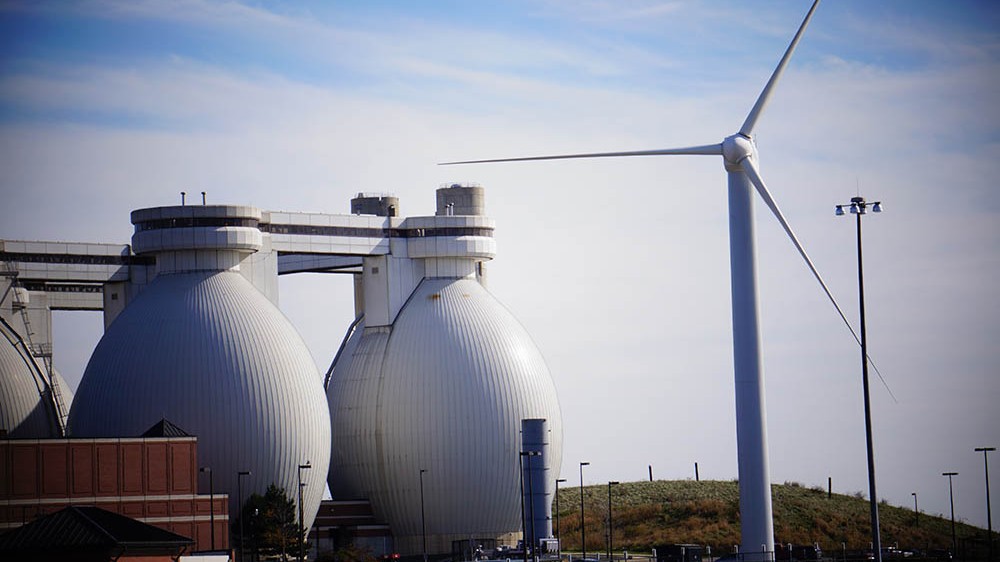
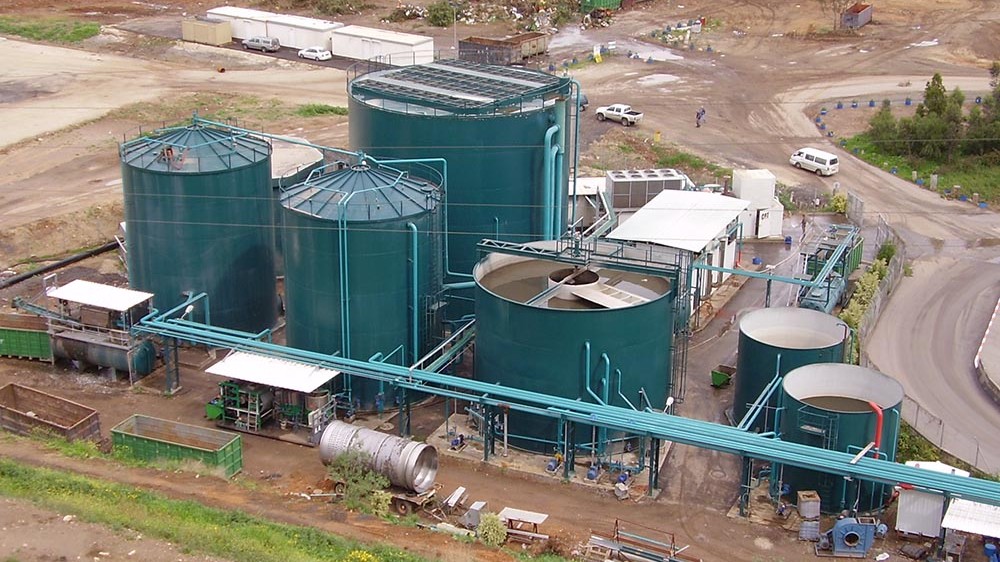
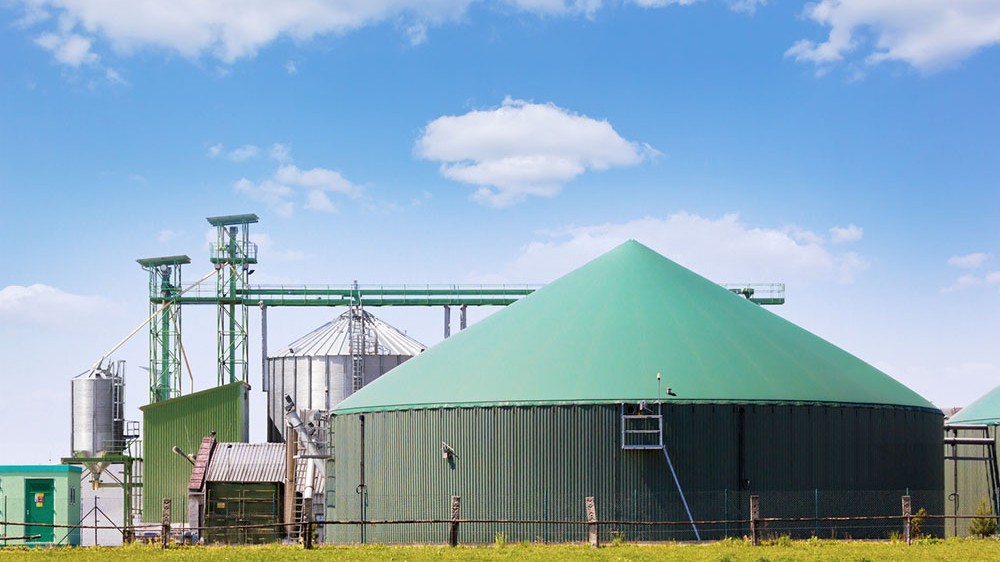
Main picture by Peter O’Connor. Some rights reserved.
18 December 2015, 10:43 am - 36 minutes 51 secondsThe Final Frontier: Best Practices for Organics Recycling in Multistory Residential Buildings, Part 2
EPISODE SUMMARYIn part one of our Best Practices episode, we took a look at strategies for building strong partnerships and for a successful roll-out. In this final episode, we’re picking up where we left off. We explore San Francisco’s best practices in gaining trust with their outreach strategies; go in-depth with Seattle’s excellent education program; demonstrate the hands-on tracking system in Los Angeles; and discuss key policy measures that can impact a program’s success.
Links to other episodes in the Series:
Episode 4
MADE POSSIBLE BY STREAMSORT
Streamsort is a data collection tool designed for quick, easy and accurate material characterisation studies and analysis in the waste management sector. The use of data today is still based on archaic methods of collection and analysis. Streamsort brings data collection technology to the next level, by removing the cost of data entry, reducing the risk for mistakes, and making compelling and analysing data much easier. Request a free demo on www.streamsort.com.
FEATURED EVENTS
This event will bring together leading practitioners, cutting-edge researchers, and Global South representatives of local farming and cooperatives of waste pickers to look into the climate solutions around organic waste, particularly exploring the intersection between zero waste and agroecology. In cities around the world, practice is showing that tackling organic waste is key; while being part of the problem, its proper management in composting can turn it into a real solution for soil depletion, emission reduction from landfills and use of chemical fertilizers.
Join the USCC at the world’s largest composting conference and exhibition for the organics management industry. Hear the latest from industry leaders about solving challenges in collecting organics, manufacturing and using compost, and producing renewable energy from organics. Visit their composting tradeshow to see the latest in equipment and tools for effective programs. of particular interest to listeners of this program will be the Session on Measuring Diversion Improvements from Enhanced Tenant Engagement at Multi-Family Dwellings, presented by Lily Kelly of Global Green.
EPISODE SLIDESHOW
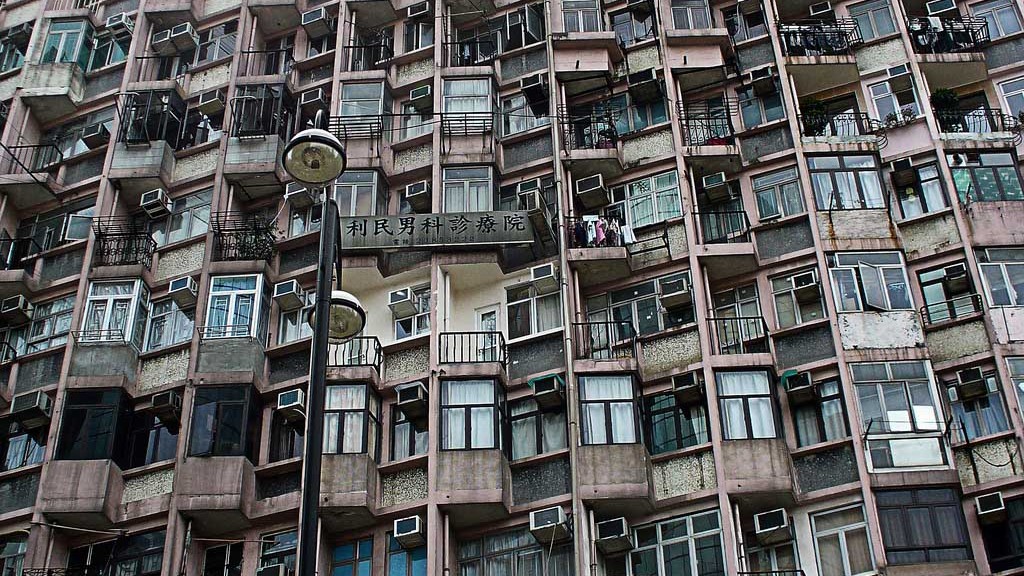
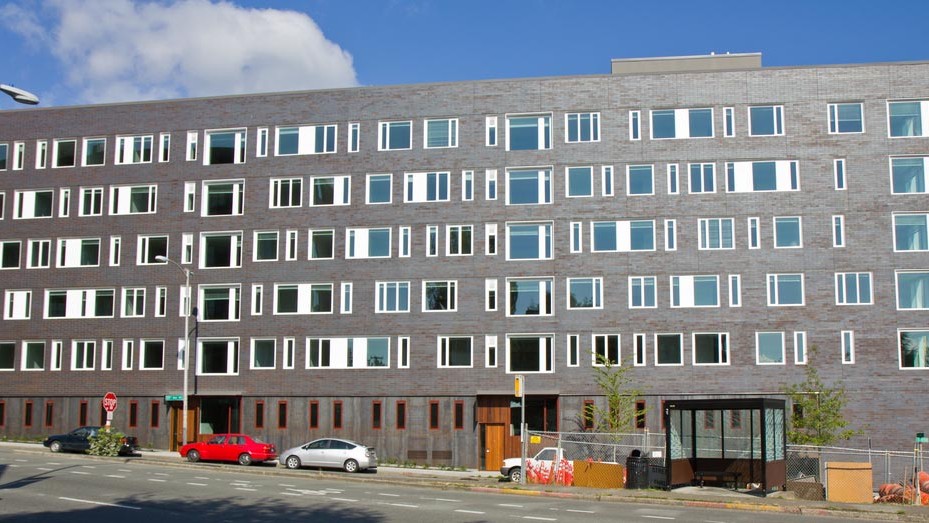


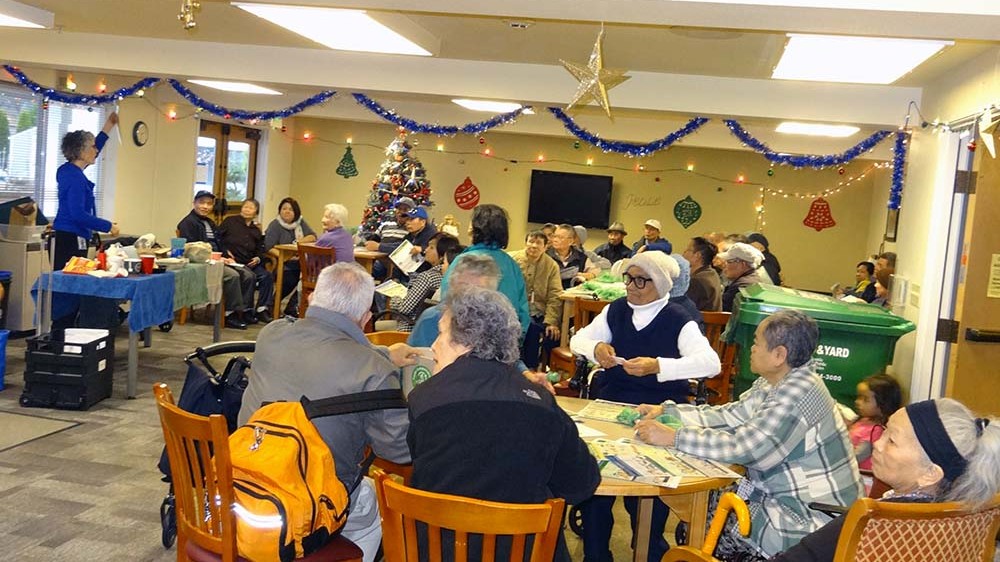
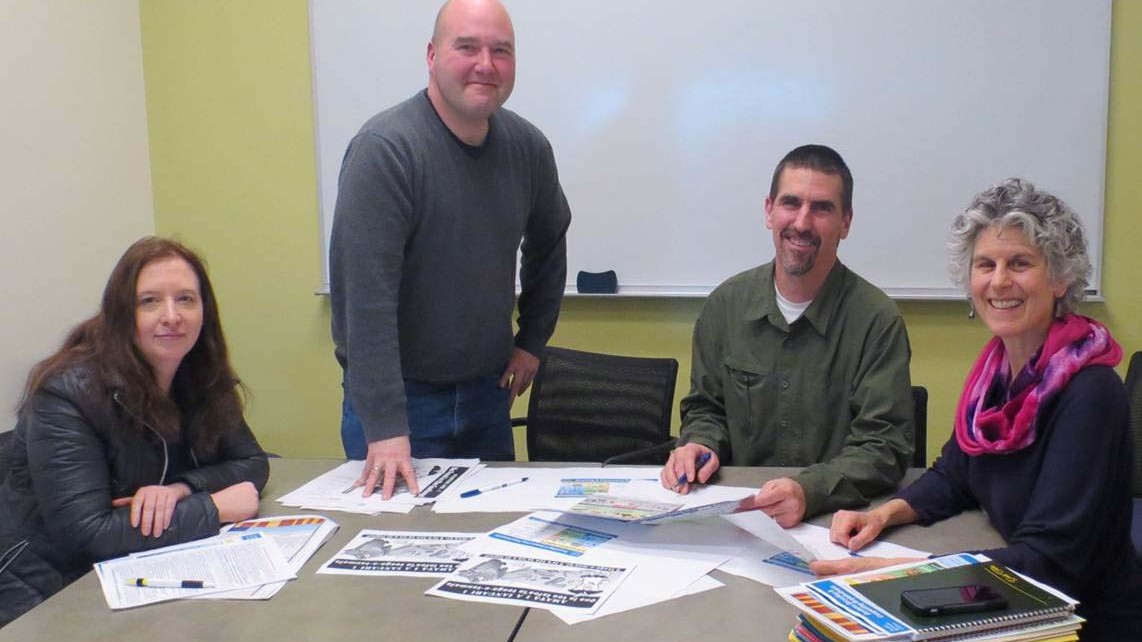
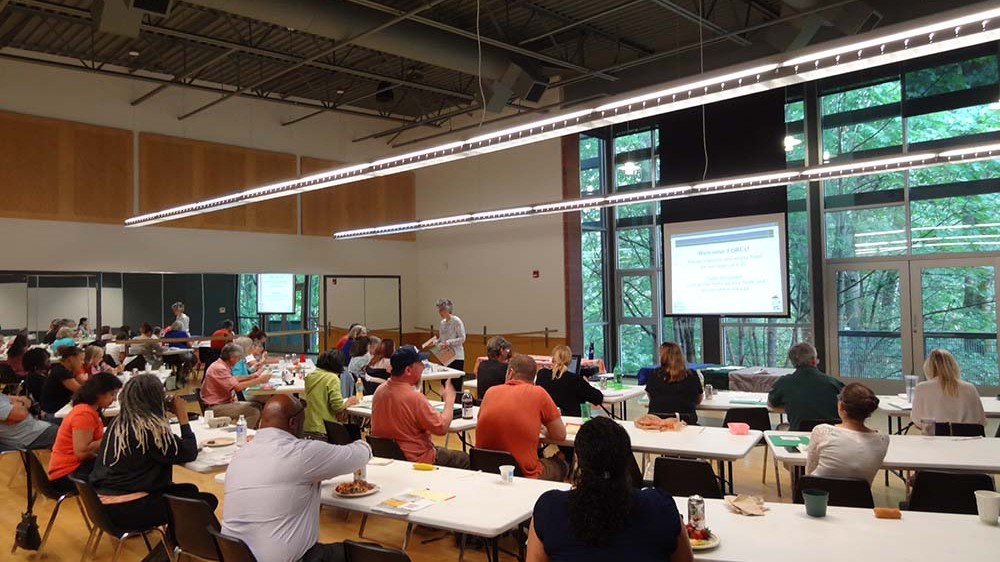
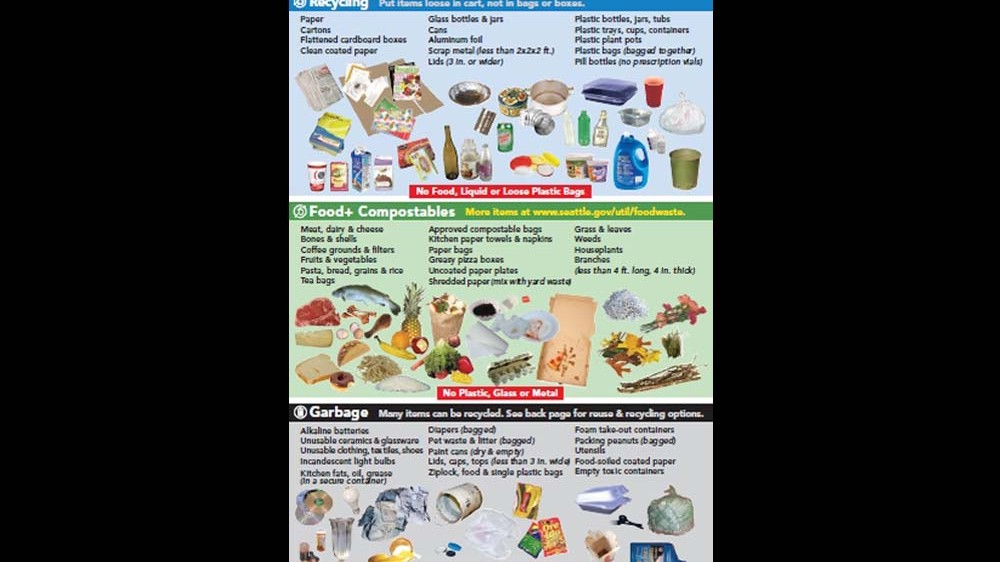
Main picture by Stefan Oh. Some rights reserved.
19 November 2015, 12:14 pm - 30 minutes 44 secondsThe Final Frontier: Best Practices for Organics Recycling in Multistory Residential Buildings, Part 1
EPISODE SUMMARY
On our journey through the planning stages of multi-residential organics programs, we’ve come across many challenges. But as more and more cities start tackling food waste in their apartment buildings, we’re creating a whole library of experiences, best practices, and successful strategies to learn from. In Episode 3, we begin to take a closer look at the cities leading the way (focusing on Milan and Los Angeles), and explore the key strategies they use that makes them so successful.
Links to other episodes in the Series:
Episode 3
MADE POSSIBLE BY ecovio® FROM BASF
ecovio® is a high-quality and versatile bioplastic of BASF. It is certified compostable and contains biobased content. The main areas of use are plastic films such as organic waste bags, dual-use bags or agricultural films. Furthermore, compostable packaging solutions such as paper-coating and injection molding products can be produced with ecovio®. To find more information, visit their website.
EcoSafe® Zero Waste designs and implements cradle to cradle solutions for source separation of organics and recyclables with a focus on diverting organic waste from landfill to commercial compost facilities. We provide our customers with the products and services they need in order to build SUSTAINABLE, SOURCE SEPARATION and DIVERSION programs designed to achieve ZERO WASTE in communities, institutions, businesses, events and at home and in public. For more, visit their website.
FEATURED EVENT
Ecomondo 2015. November 3rd to 6th, 2015. Rimini, Italy.
The largest technology platform for the Green and Circular Economy in the Euro-Mediterranean area – and for advanced and sustainable technology for processing and recycling all kinds of waste; treating and reclaiming water, waste water and polluted marine sites; efficient use and transformation of raw and processed materials and the promotion of renewable raw materials.
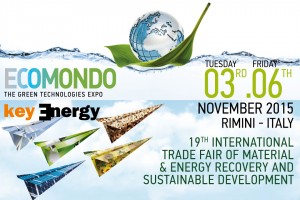
EPISODE SLIDESHOW
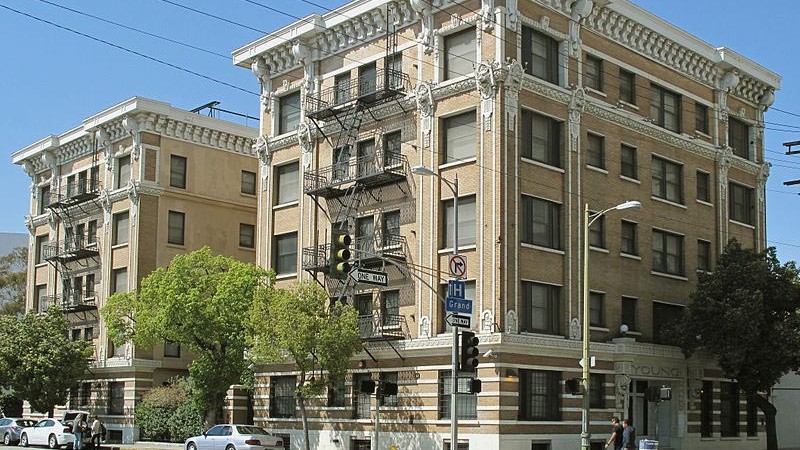
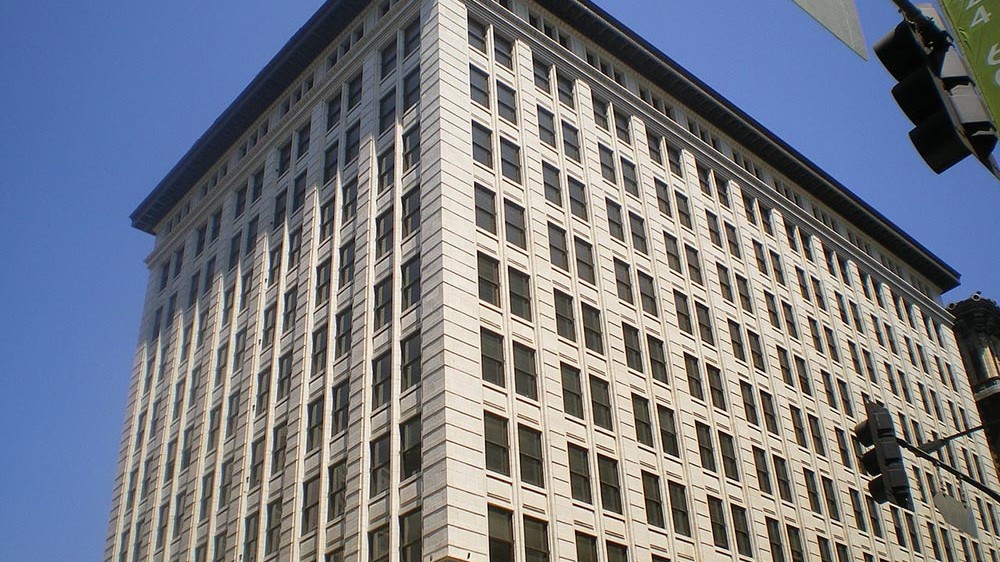
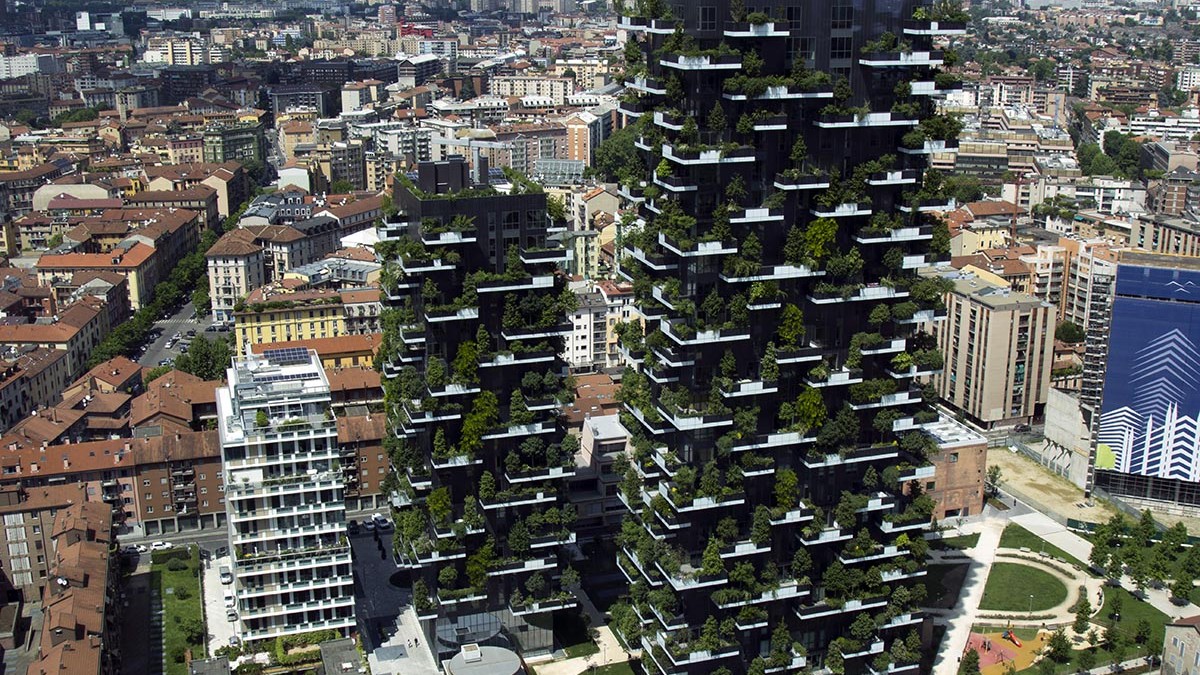
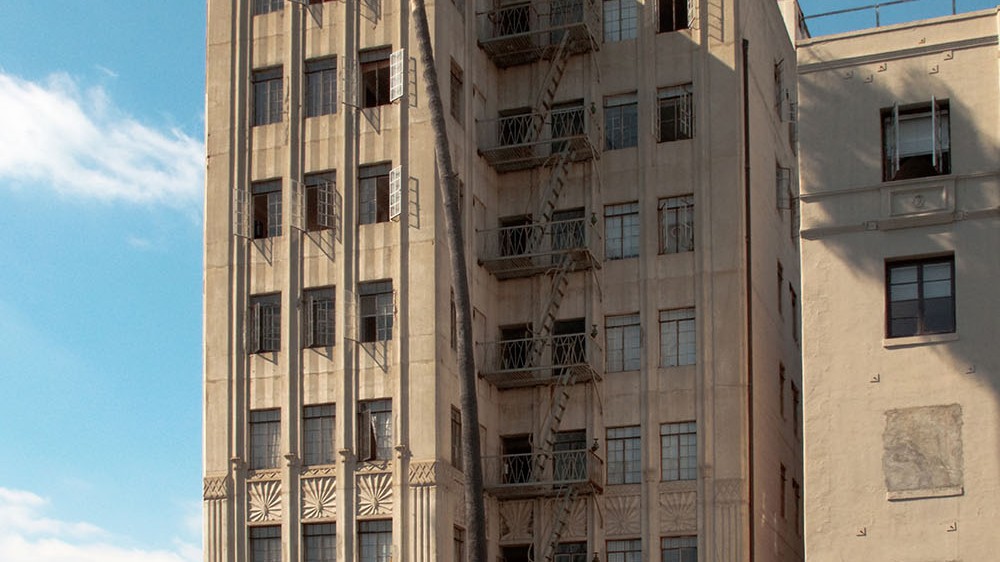
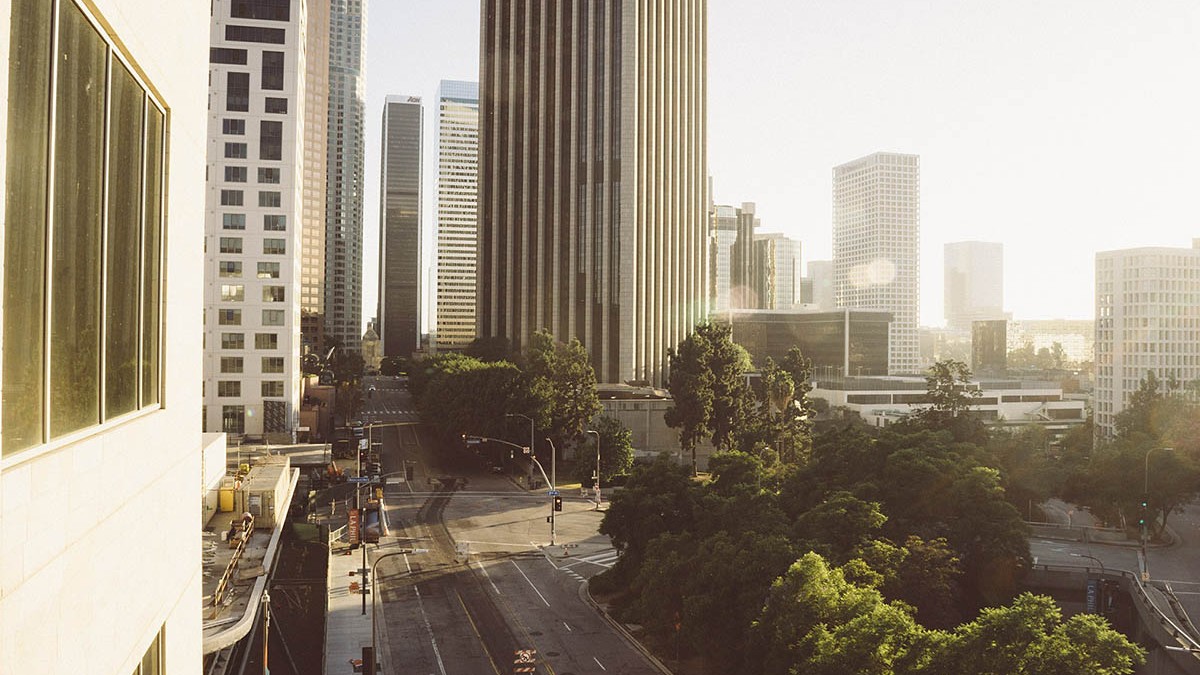
Title photo by johnwilliamsphd. Some rights reserved.
27 October 2015, 8:33 am - 31 minutes 42 secondsWaste Less Recycle More: How New South Wales Is Transforming the Organics Recycling Landscape
EPISODE SUMMARY
This week we’re in New South Wales, Australia, to learn about the Waste Less Recycle More initiative and the Organics Infrastructure Fund that will see 70 million AUD invested into organics management in the region. We speak with the Director of Waste and Resource Recovery at the NSW Environment Protection Authority (EPA), Steve Beaman, to learn more about this initiative and their plans to pull more organics out of landfills, and discuss the importance of government support and strong policy for success.
We also speak with Robert Niccol of landscape and agricultural supply company Australian Native Landscapes, to get an insight into the processor’s perspective, the challenges that the industry anticipates with this increase in supply, and to discuss further the EPA’s plans to work with industry in developing new markets with their Organics Market Development grants.
MADE POSSIBLE BY NSW ENVIRONMENT PROTECTION AUTHORITY (EPA)
The NSW Environment Protection Authority (EPA) is the primary environmental regulator for New South Wales. Our purpose is to improve environmental performance and waste management for NSW.
The EPA’s Waste Less, Recycle More is a five year, $465.7 million initiative that’s transforming waste management in NSW. It includes funding for organics collections, processing infrastructure and market development, business recycling, drop off centres for problem wastes and programs to tackle litter and illegal dumping.
EPISODE SLIDESHOW



 13 July 2015, 1:37 pm
13 July 2015, 1:37 pm - 34 minutes 31 secondsWinning the Gold Medal: A Recycling Vision for the Olympic Games
EPISODE SUMMARY
Where people gather, there will be waste. An event the size of the Olympic Games generates about four-hundred kilograms of waste per minute – and half of that is organic. This week, we travel to Rio De Janeiro and speak with the Head of Cleaning and Waste at the 2016 Olympic Games about their sustainability plans, and take a retrospective look at London 2012 – the very first Olympics to include a Zero Waste to landfill program – in order to ask: just what does a sustainable, zero waste Olympics look like? And is it even possible? What are the lessons learned from London 2012, and what challenges do Rio face as they prepare for hosting the games next year?
Interview guests: Edison Sanromã, Head of Cleaning & Waste, Rio 2016 and Shaun McCarthy (OBE), Former Chair of the Commission for a Sustainable London 2012.
In part two of the show, we bring you highlights from the recent Save Our Soils event in Malmö, Sweden, that gathered international experts in soil science to share with us their knowledge and discuss today’s challenges to soil health. You can find video briefings and material from this event on our Events Page.
MADE POSSIBLE BY BIOBIN®BiobiN® is a mobile, on-site organic/wet material management solution that starts the composting process and effectively manages odour from putrescible waste. BiobiN® can be used in a variety of outlets, including food manufacturing, restaurants, shopping centres, supermarkets…it’s endless. Wherever organic or wet materials are generated, BiobiN® is THE solution. For more, visit their website.
EPISODE LINKS
London 2012 Learning Legacy website.
Commission for a Sustainable London 2012 website.
Rio 2016 Sustainability website.
FEATURED EVENT
As world population grows and food production demand rises, it is of increasing importance to keep soils healthy, productive and capable of sequestering carbon. So how do we protect global soils from eroding? How do we keep them healthy? This seminar seeks to address these and other soil related questions by creating a space for discussion between scientists and practitioners, who battle with soil degradation every day.
EPISODE SLIDESHOW

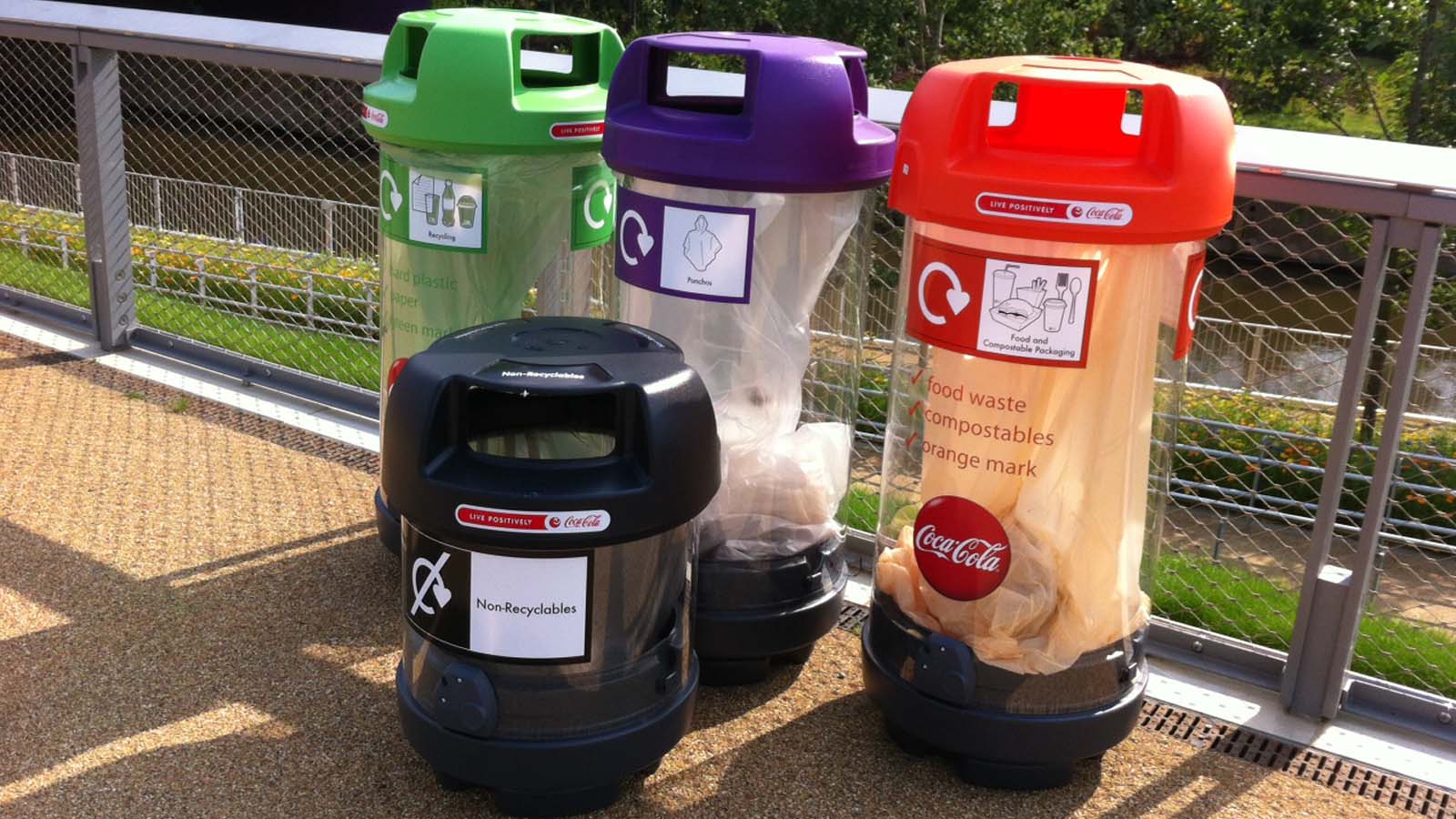
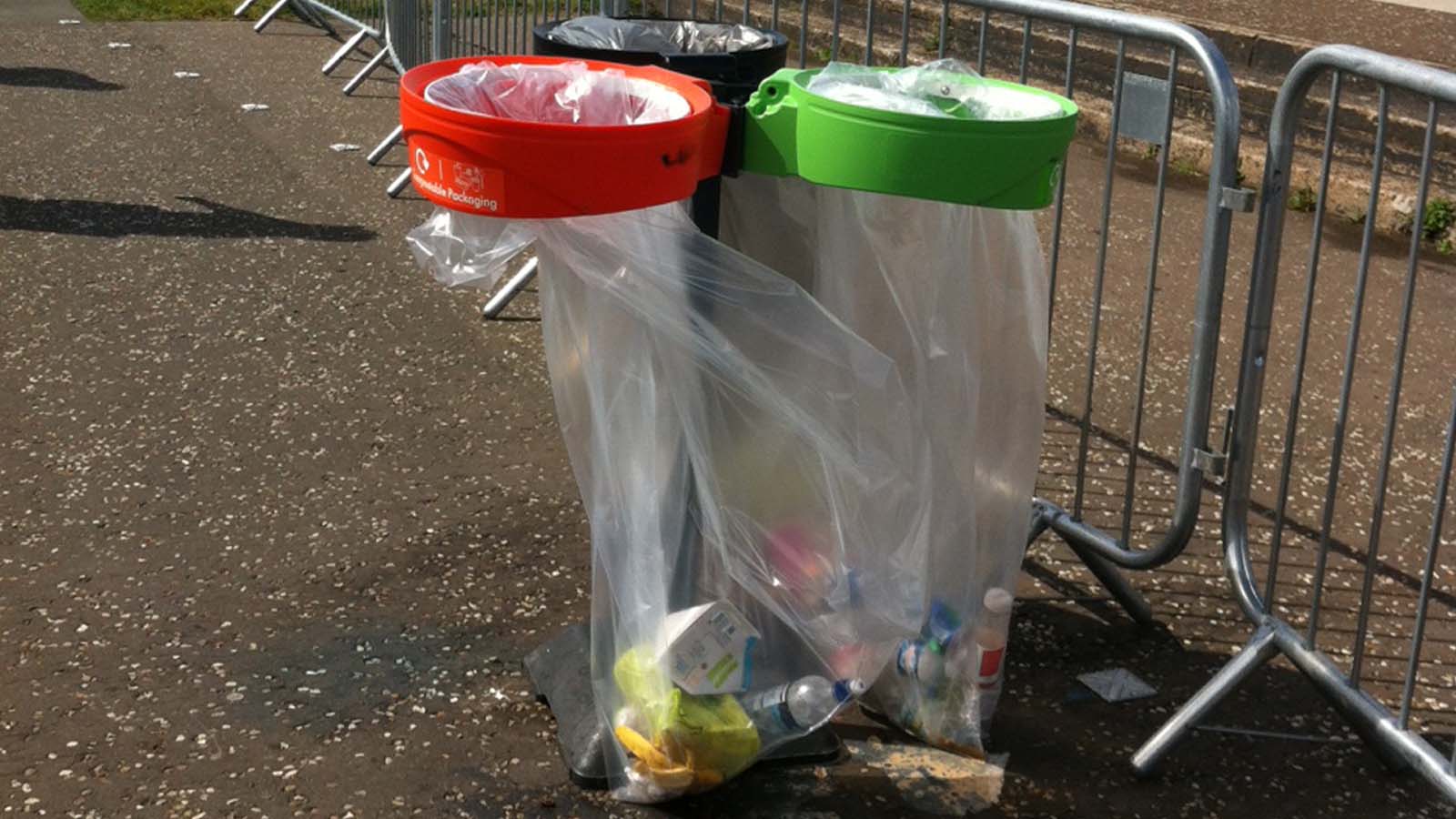


 8 July 2015, 1:44 pm
8 July 2015, 1:44 pm - 32 minutes 50 secondsThe Final Frontier: Challenges For Organics Recycling in Multistory Residential Buildings, Part 2
EPISODE SUMMARY
Multistory buildings are often considered the final frontier of organics recycling – and it’s easy to see why. Densely populated with little space, there are a number of challenges to tackle when setting up a program. In episode two, we pick off where we left off in episode one and continue to explore these challenges, and the factors that will impact your program. With guests from cities around the world, we discuss tenant participation, reaching out to the different demographics, the differences between voluntary and mandatory programs, and bin lining strategies.
Links to other episodes in the Series:
Episode 2
MADE POSSIBLE BY ecovio® FROM BASF
ecovio® is a high-quality and versatile bioplastic of BASF. It is certified compostable and contains biobased content. The main areas of use are plastic films such as organic waste bags, dual-use bags or agricultural films. Furthermore, compostable packaging solutions such as paper-coating and injection molding products can be produced with ecovio®. To find more information, visit their website.
EcoSafe® Zero Waste designs and implements cradle to cradle solutions for source separation of organics and recyclables with a focus on diverting organic waste from landfill to commercial compost facilities. We provide our customers with the products and services they need in order to build SUSTAINABLE, SOURCE SEPARATION and DIVERSION programs designed to achieve ZERO WASTE in communities, institutions, businesses, events and at home and in public. For more, visit their website.
EPISODE SLIDESHOW
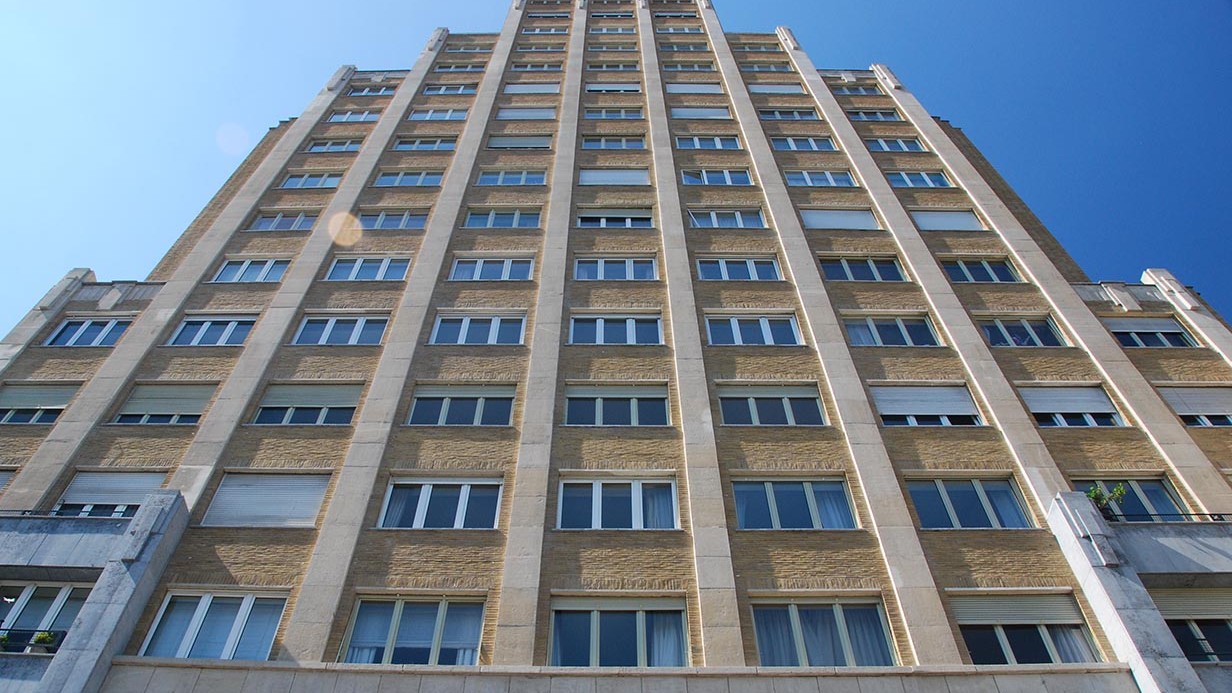
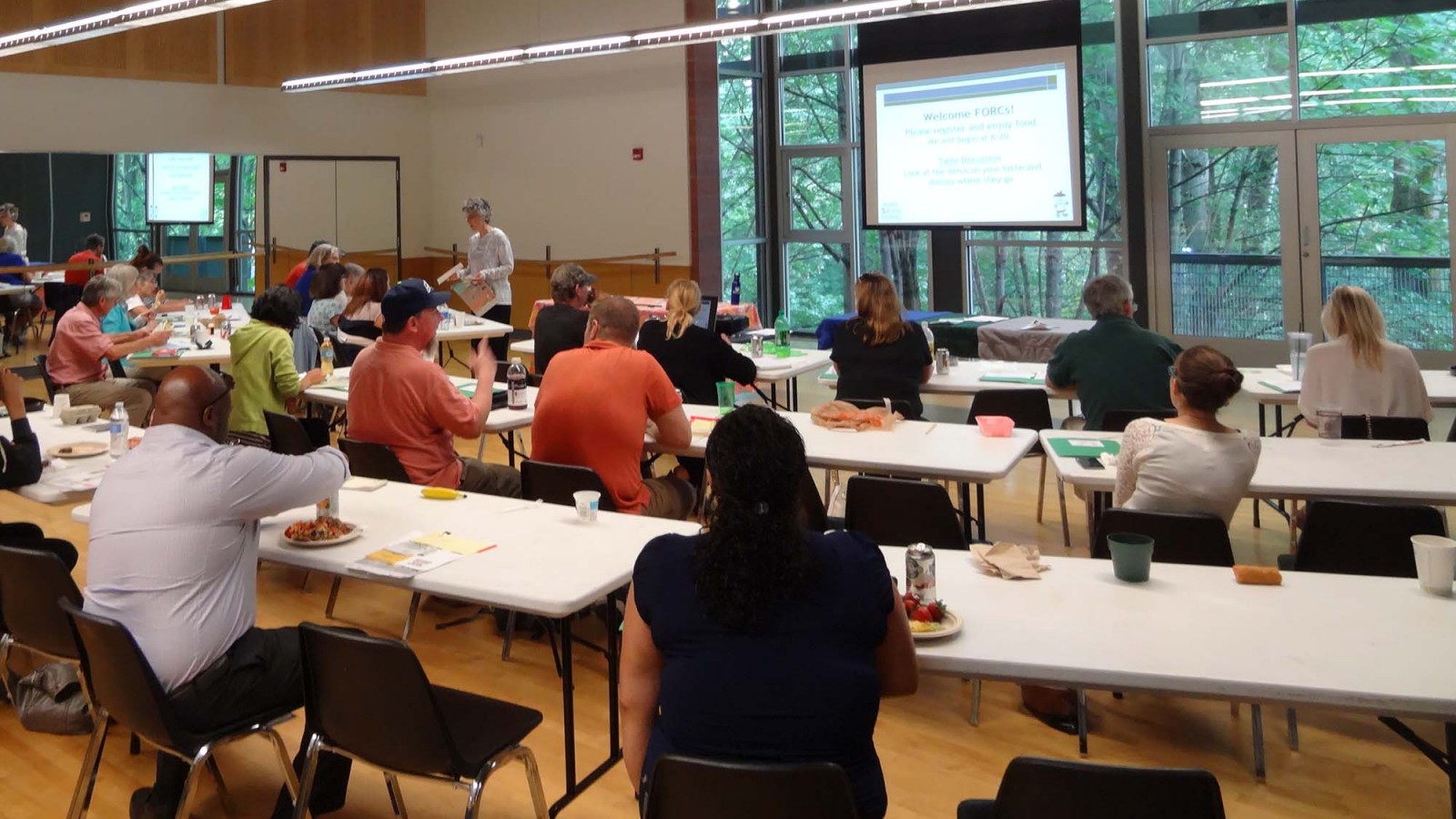

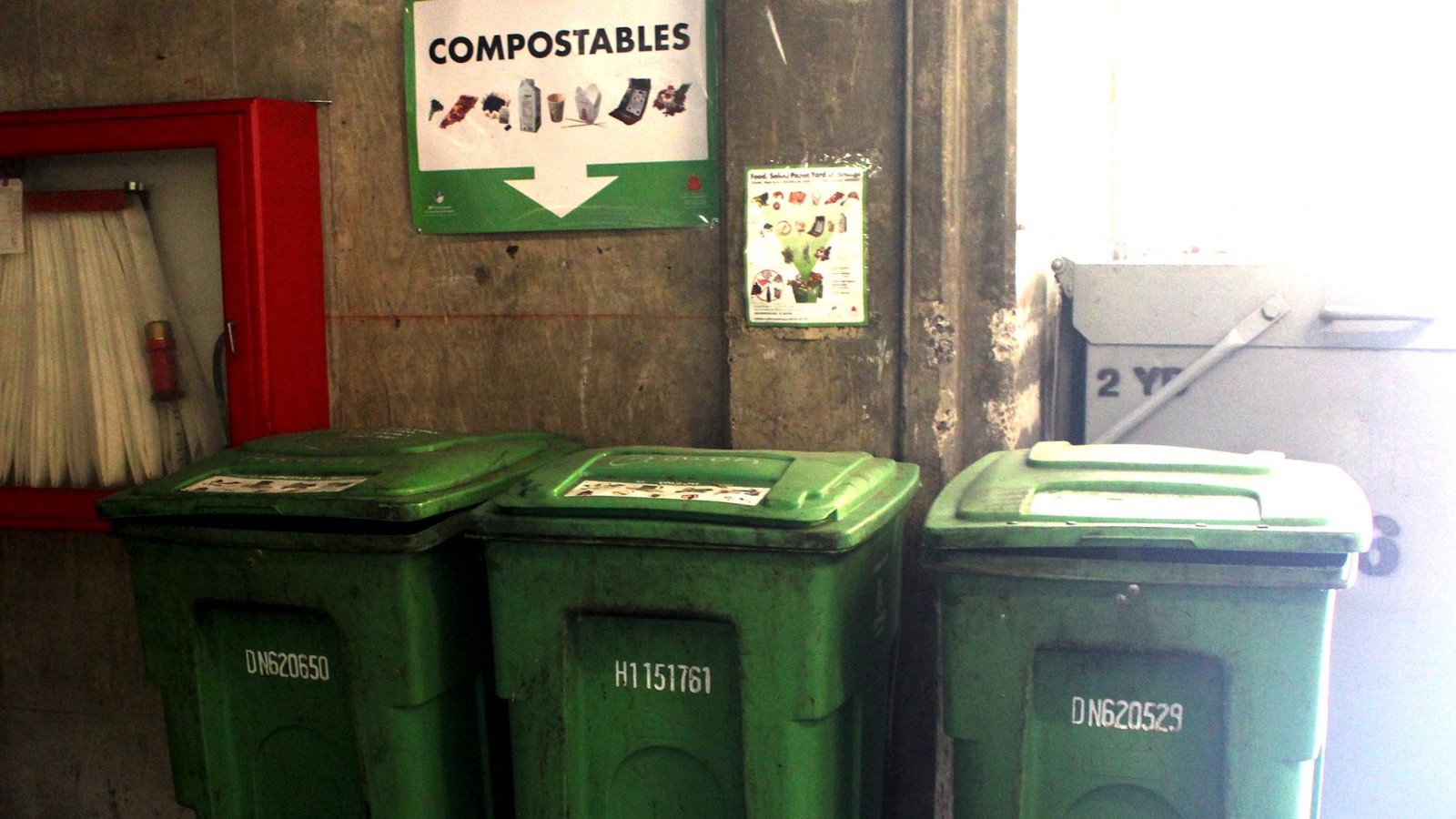
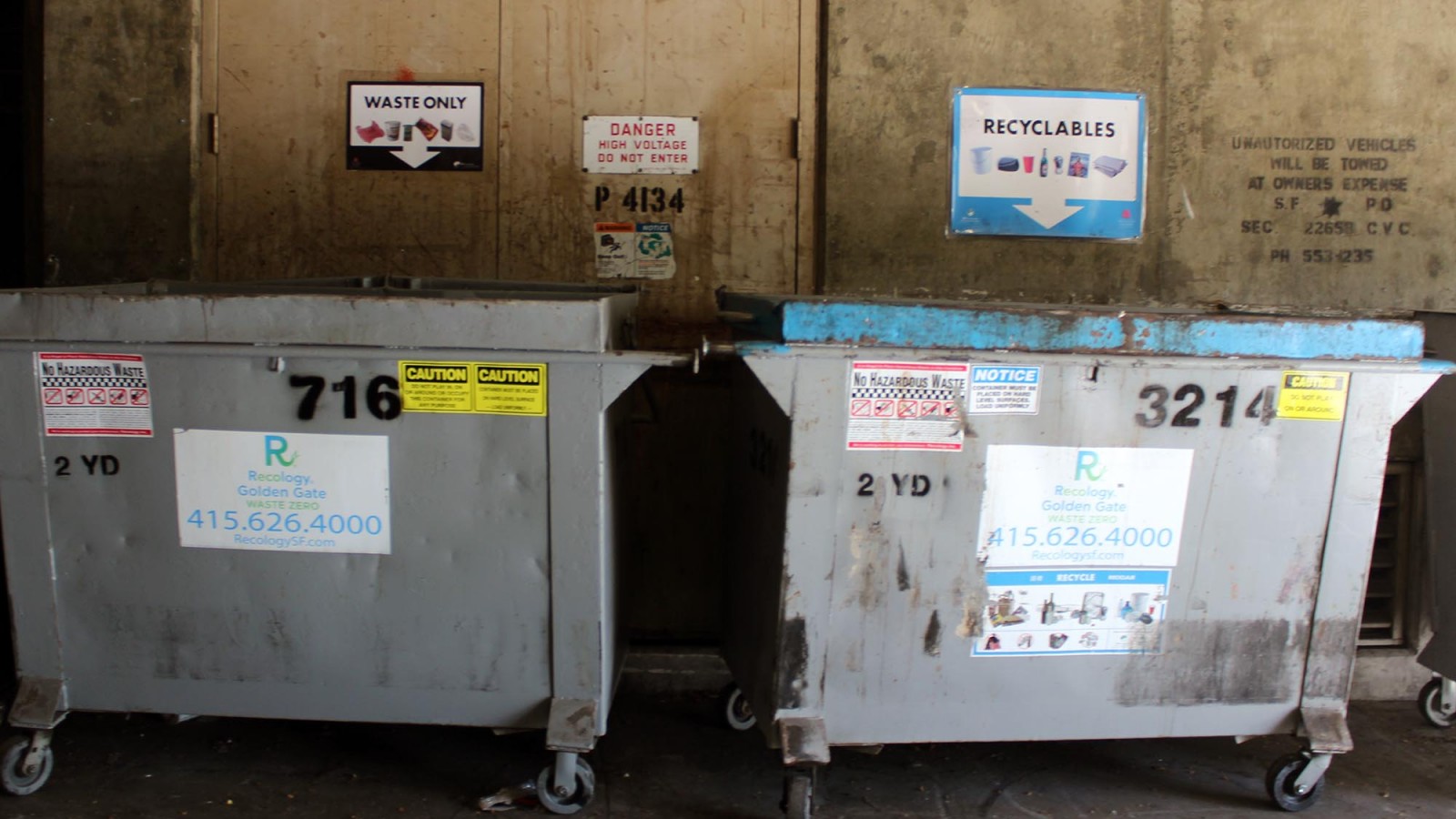
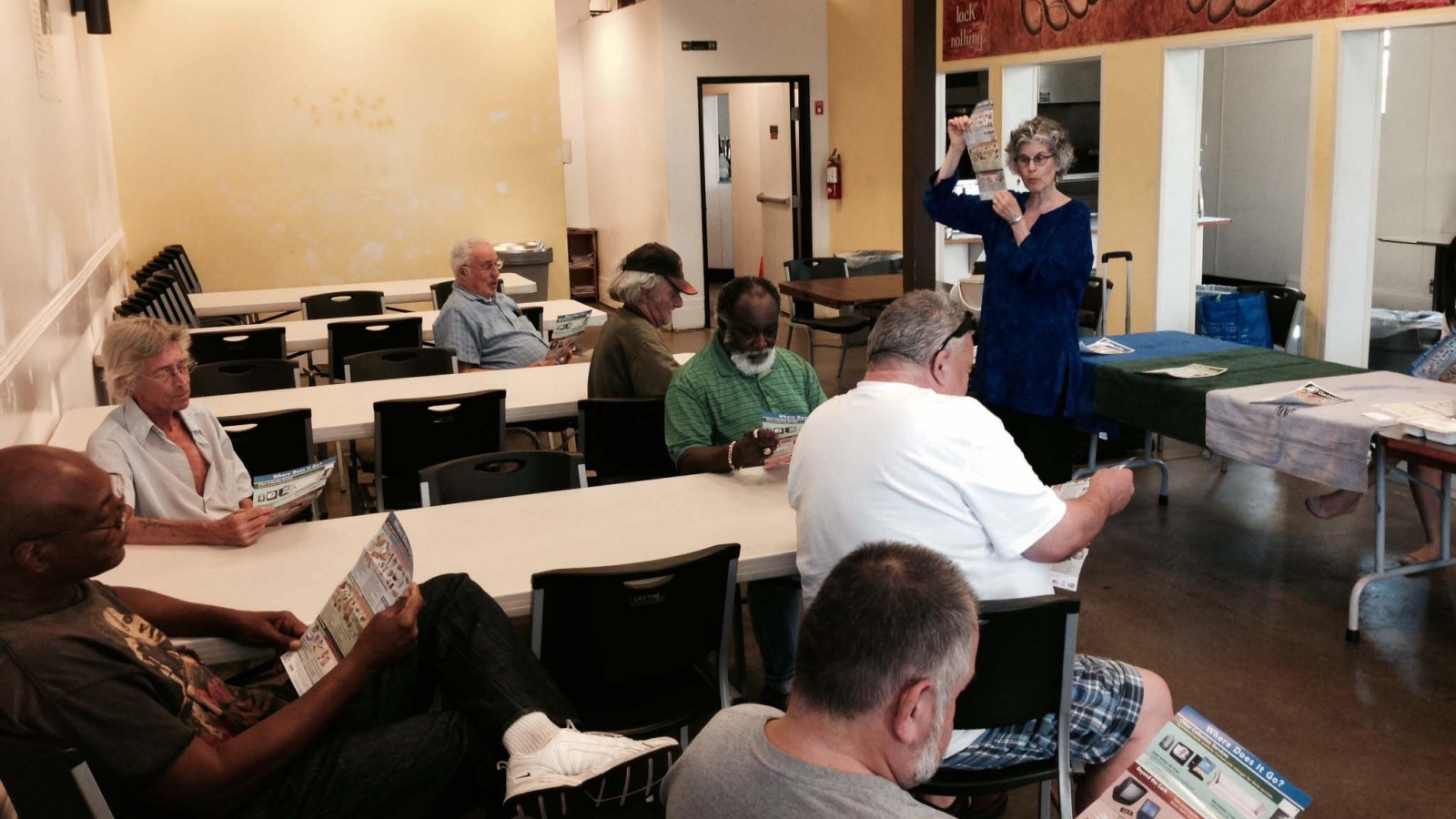 2 July 2015, 9:43 am
2 July 2015, 9:43 am - More Episodes? Get the App
Your feedback is valuable to us. Should you encounter any bugs, glitches, lack of functionality or other problems, please email us on [email protected] or join Moon.FM Telegram Group where you can talk directly to the dev team who are happy to answer any queries.
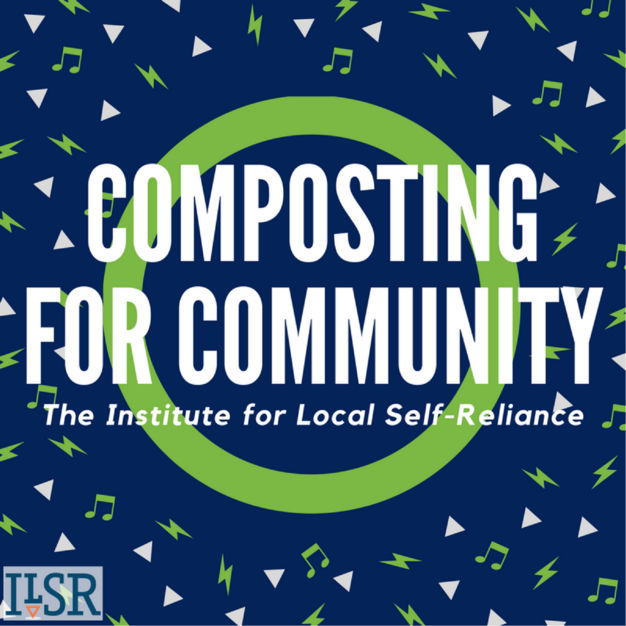 Composting For Community
Composting For Community
 Composting in the Pacific Northwest
Composting in the Pacific Northwest
 RadioGarden
RadioGarden
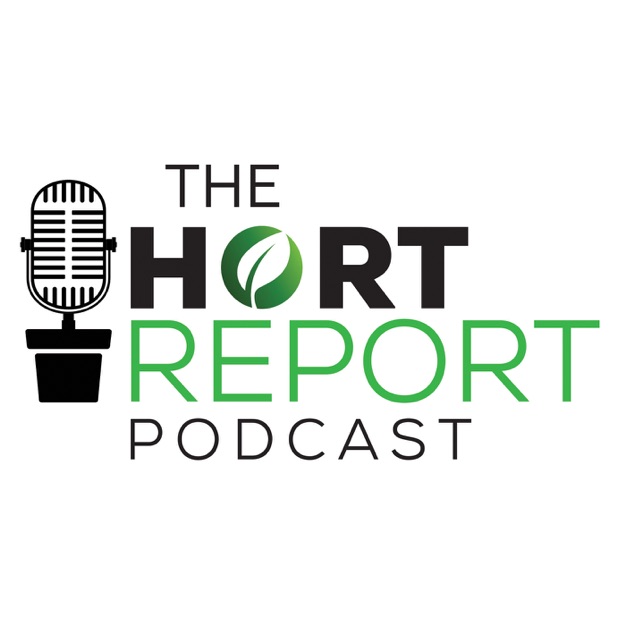 The Hort Report Podcast
The Hort Report Podcast
 Green Exchange
Green Exchange